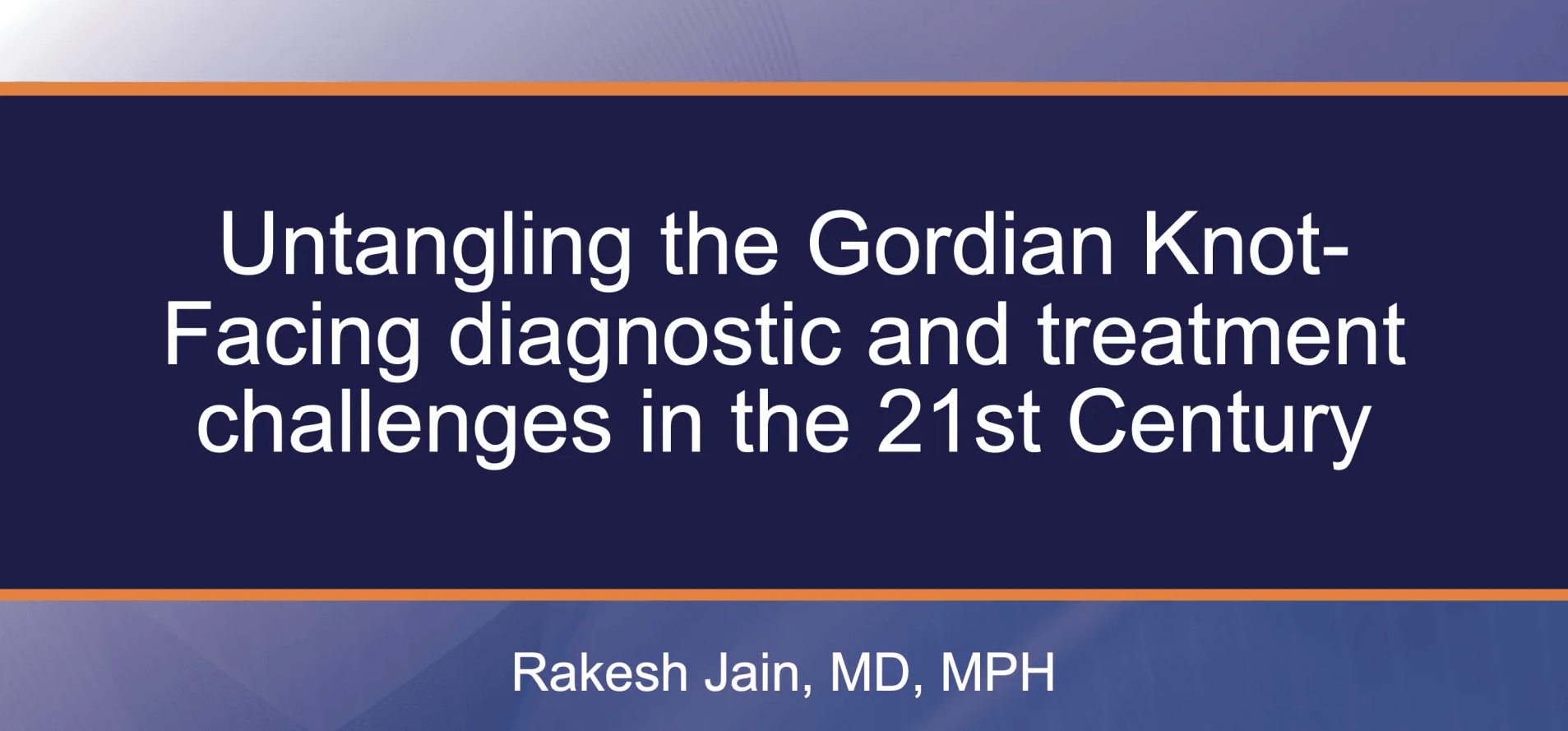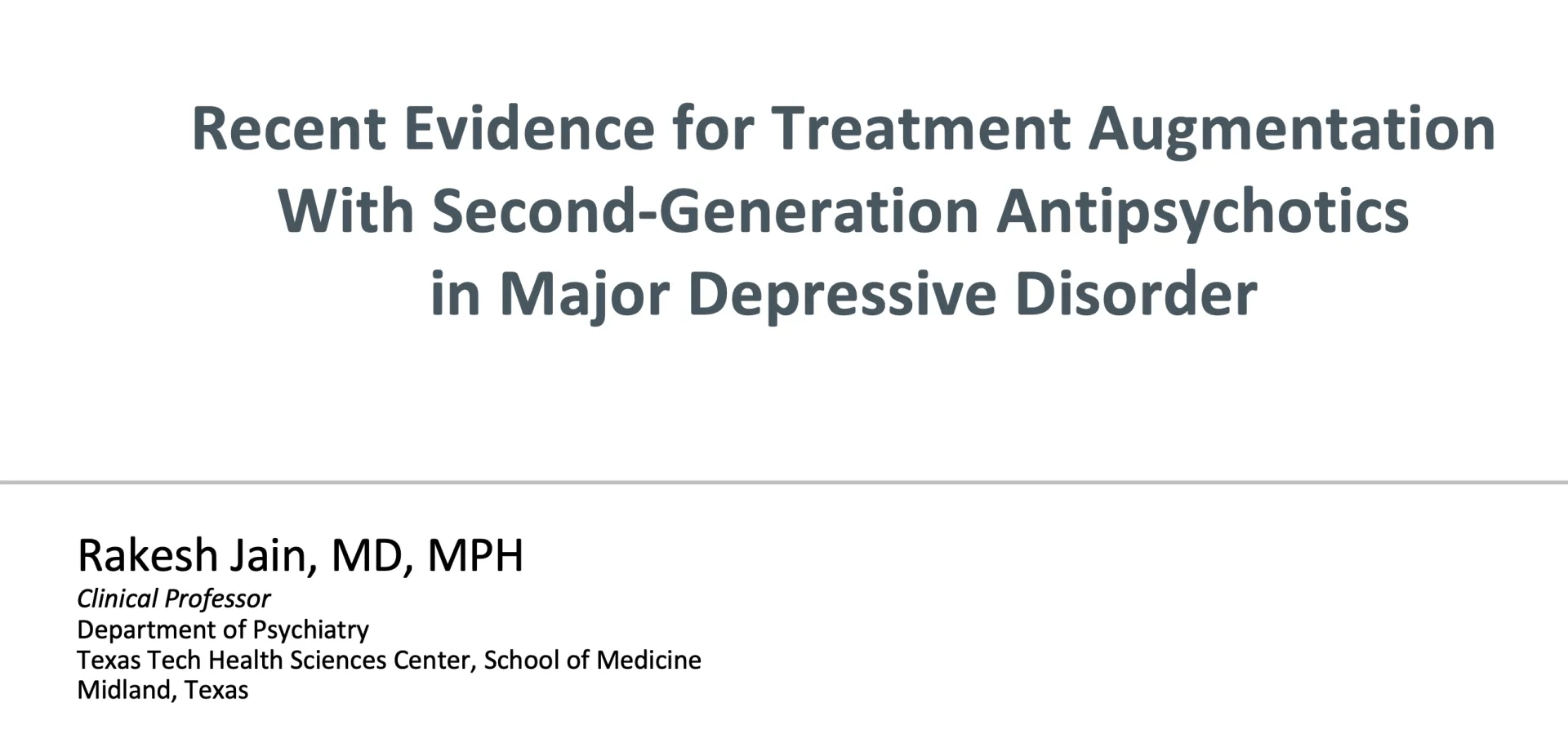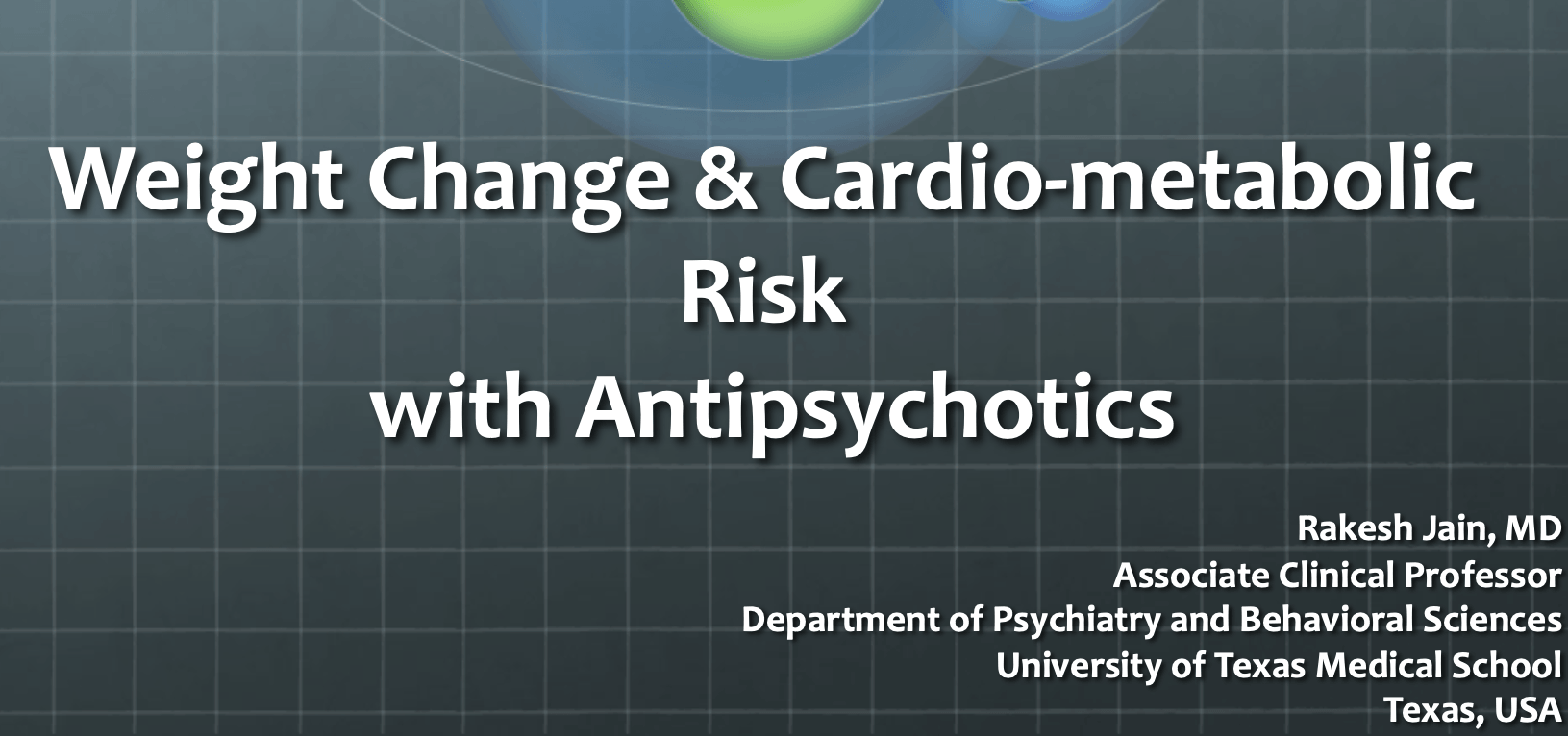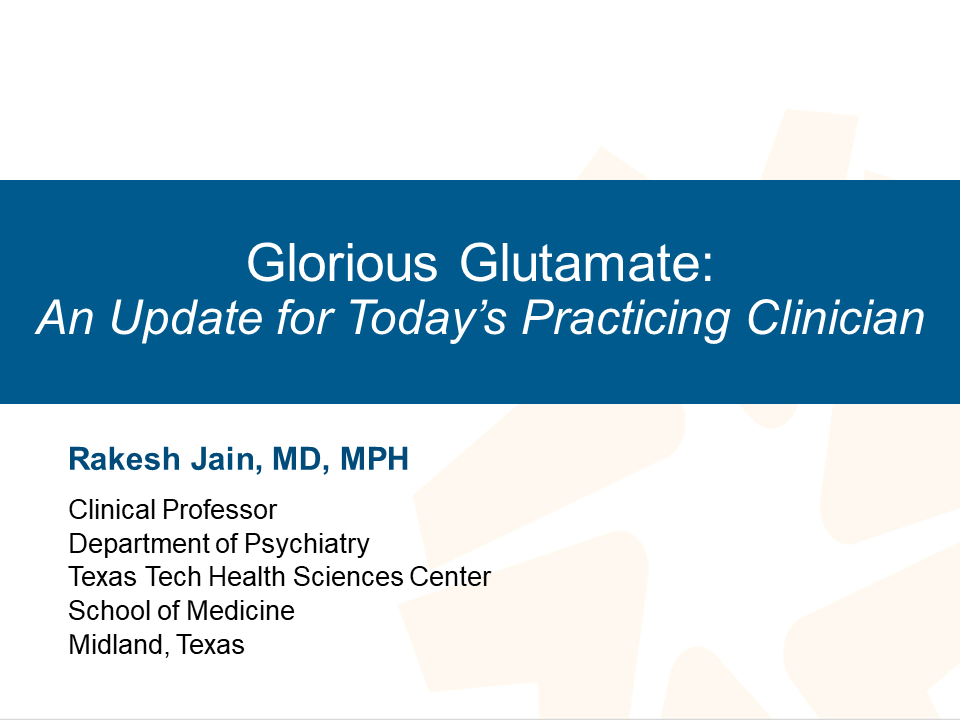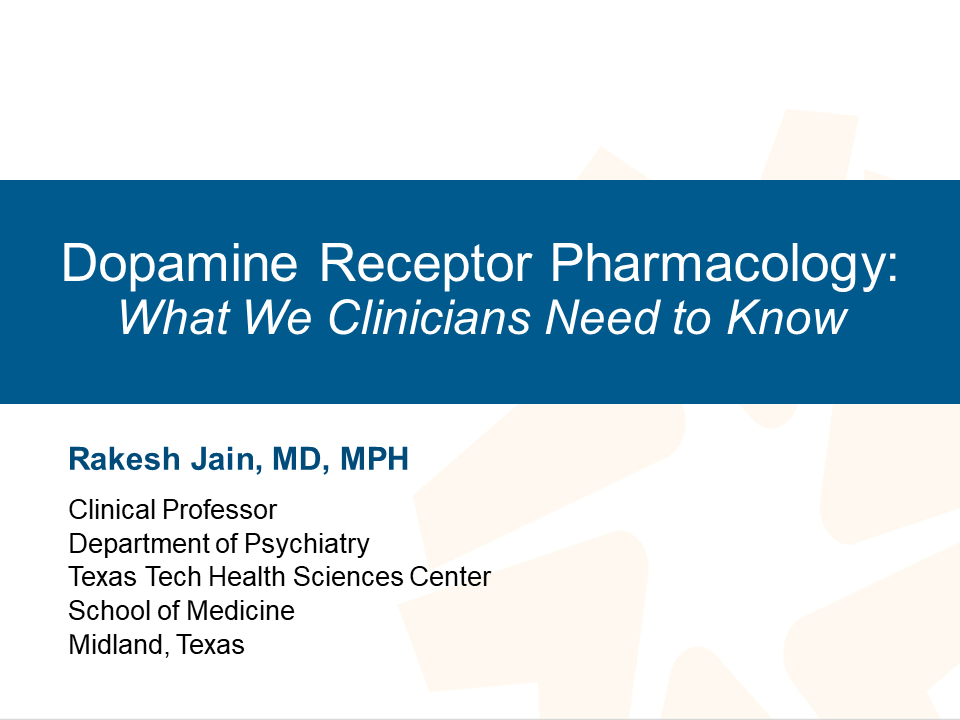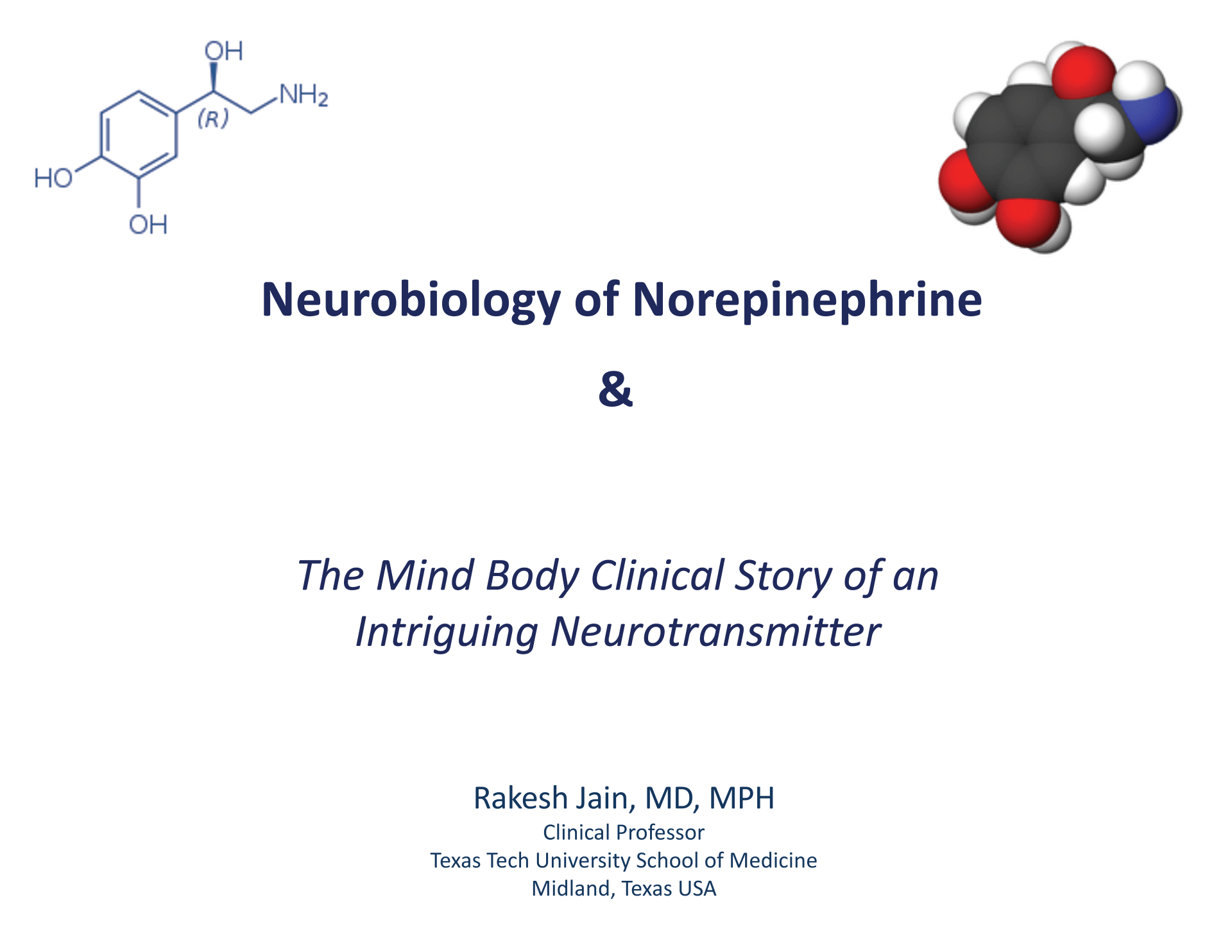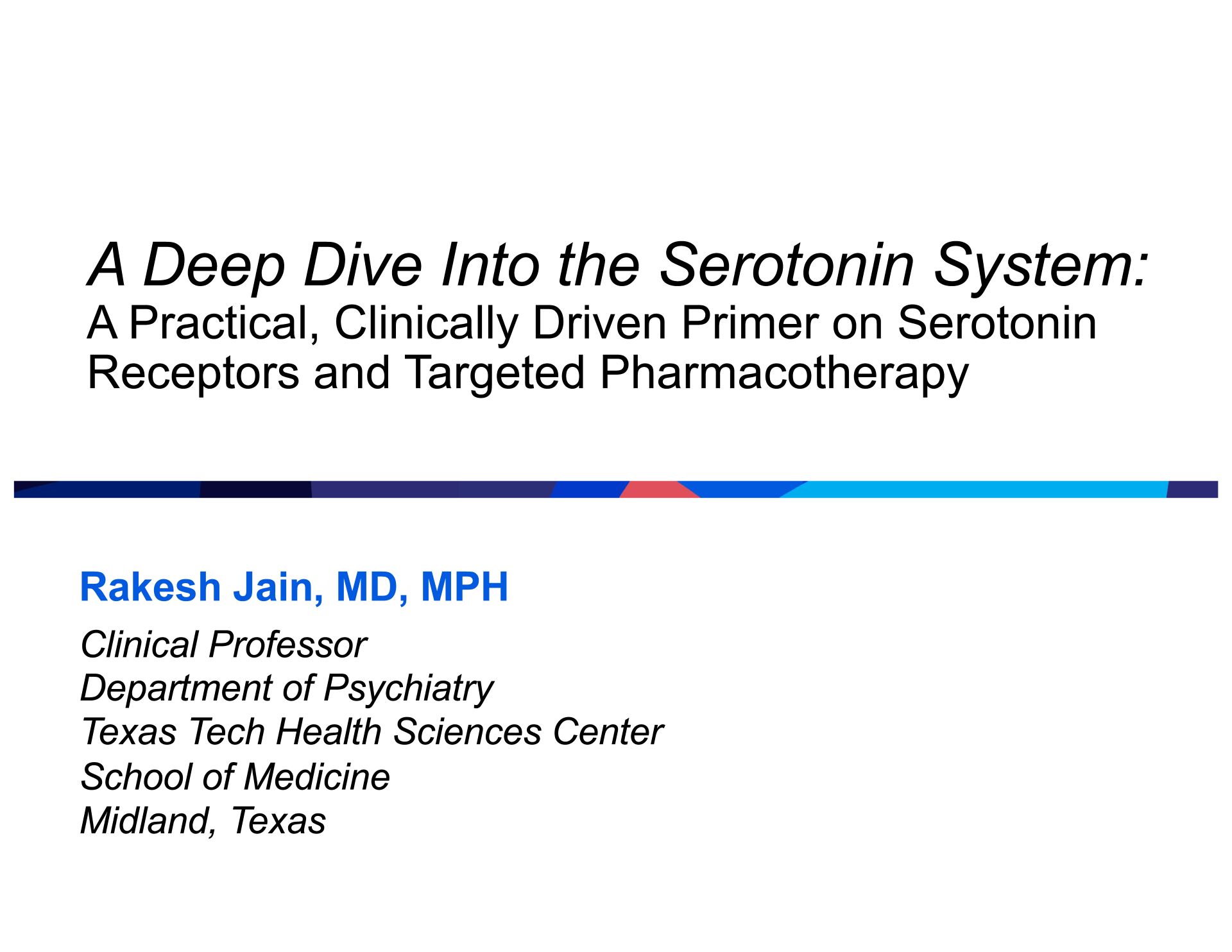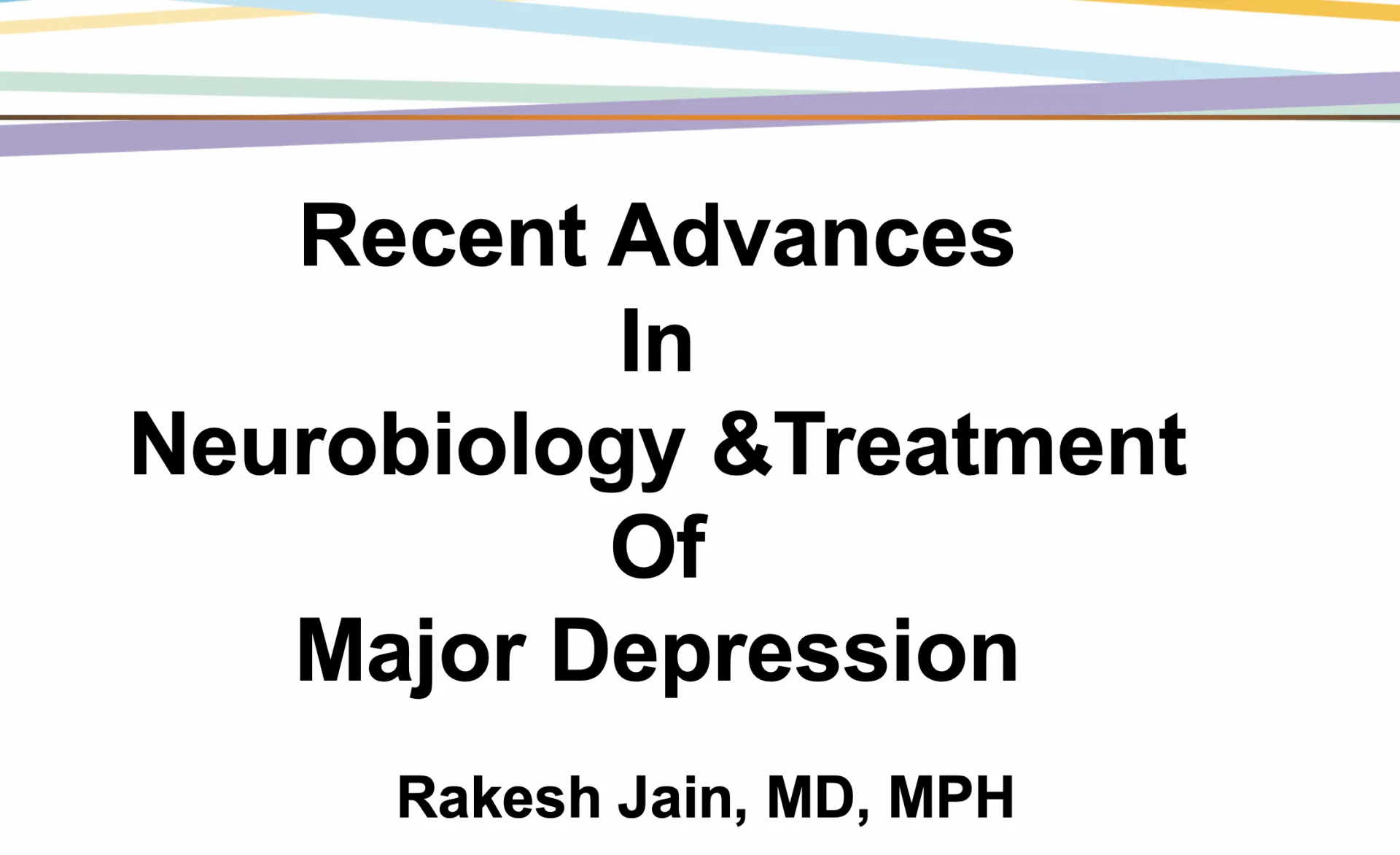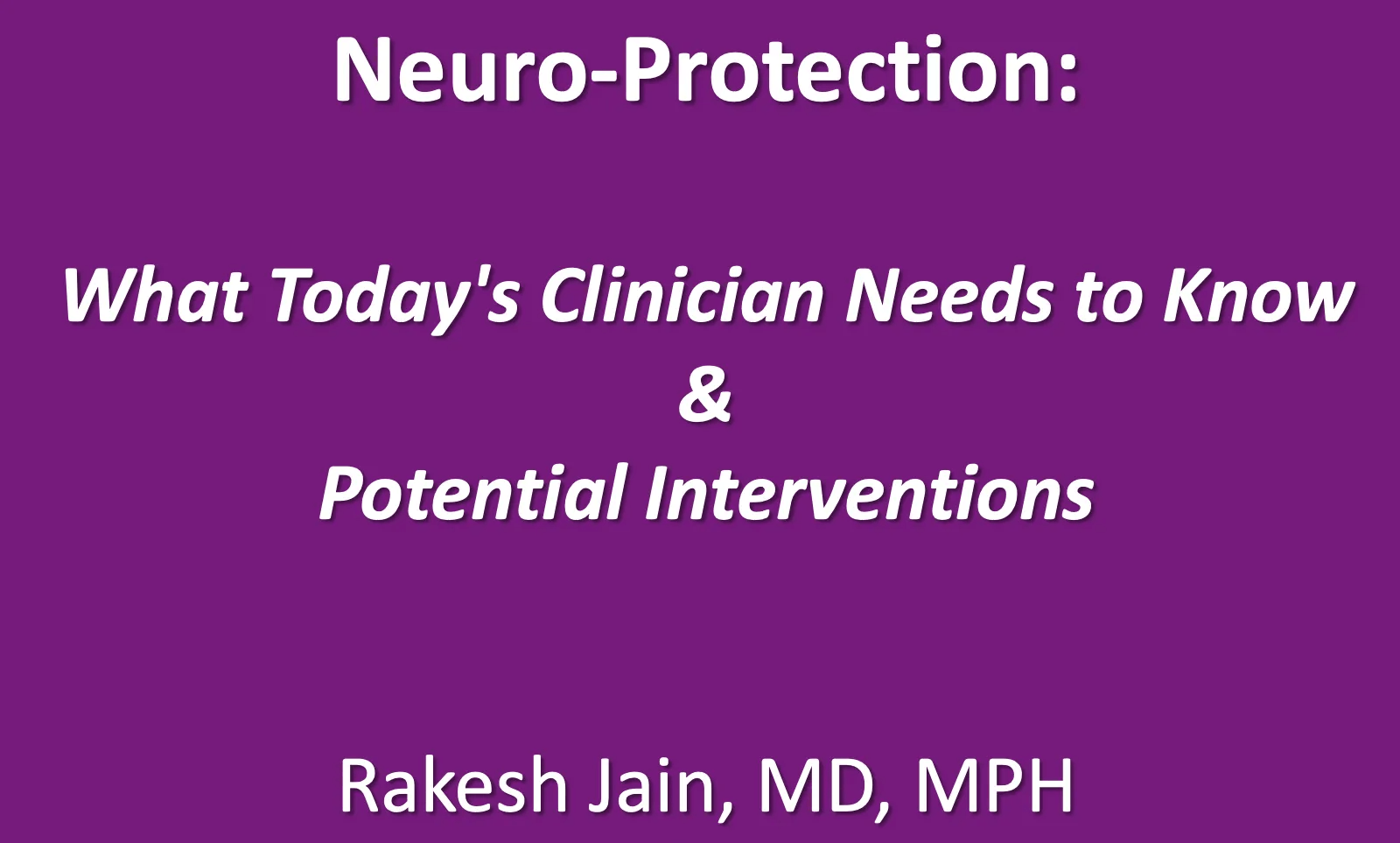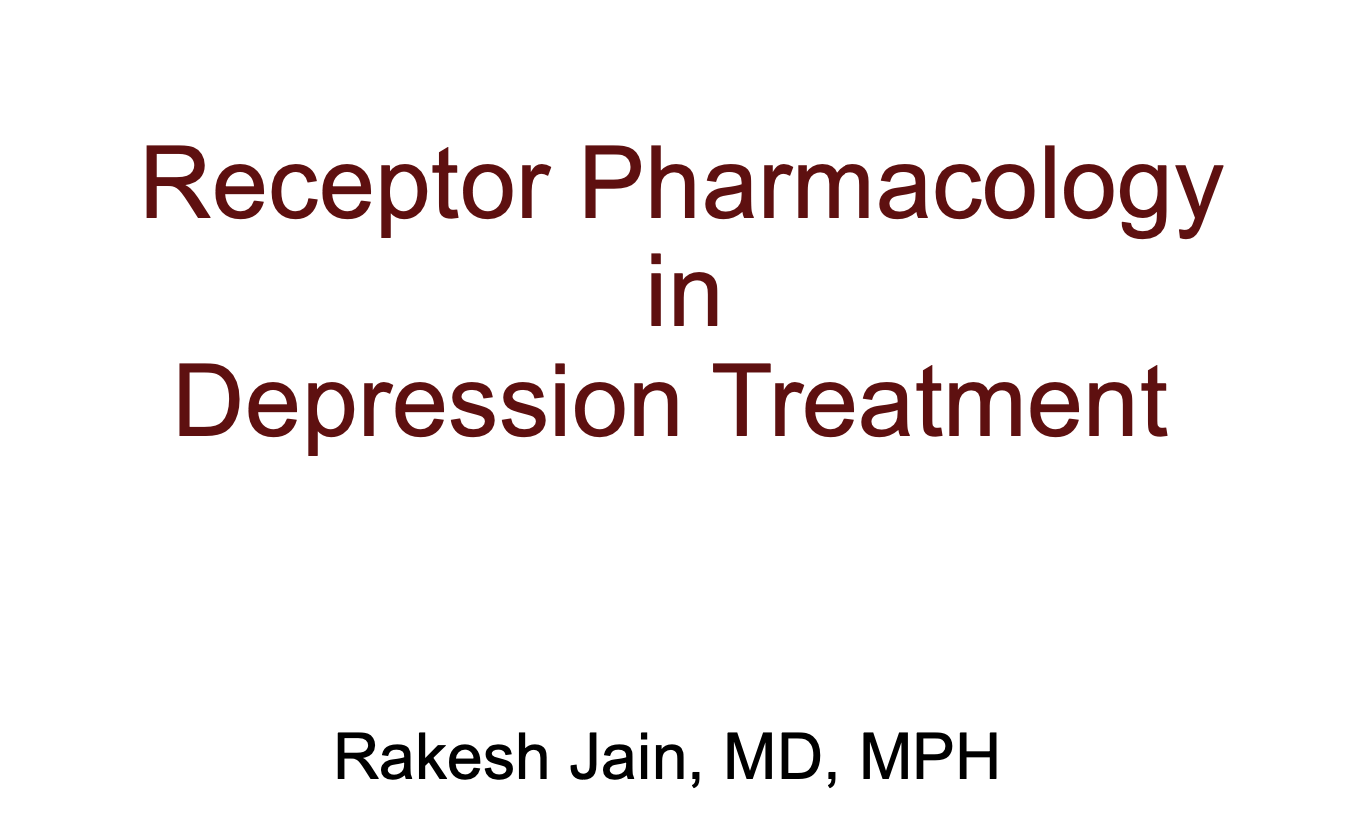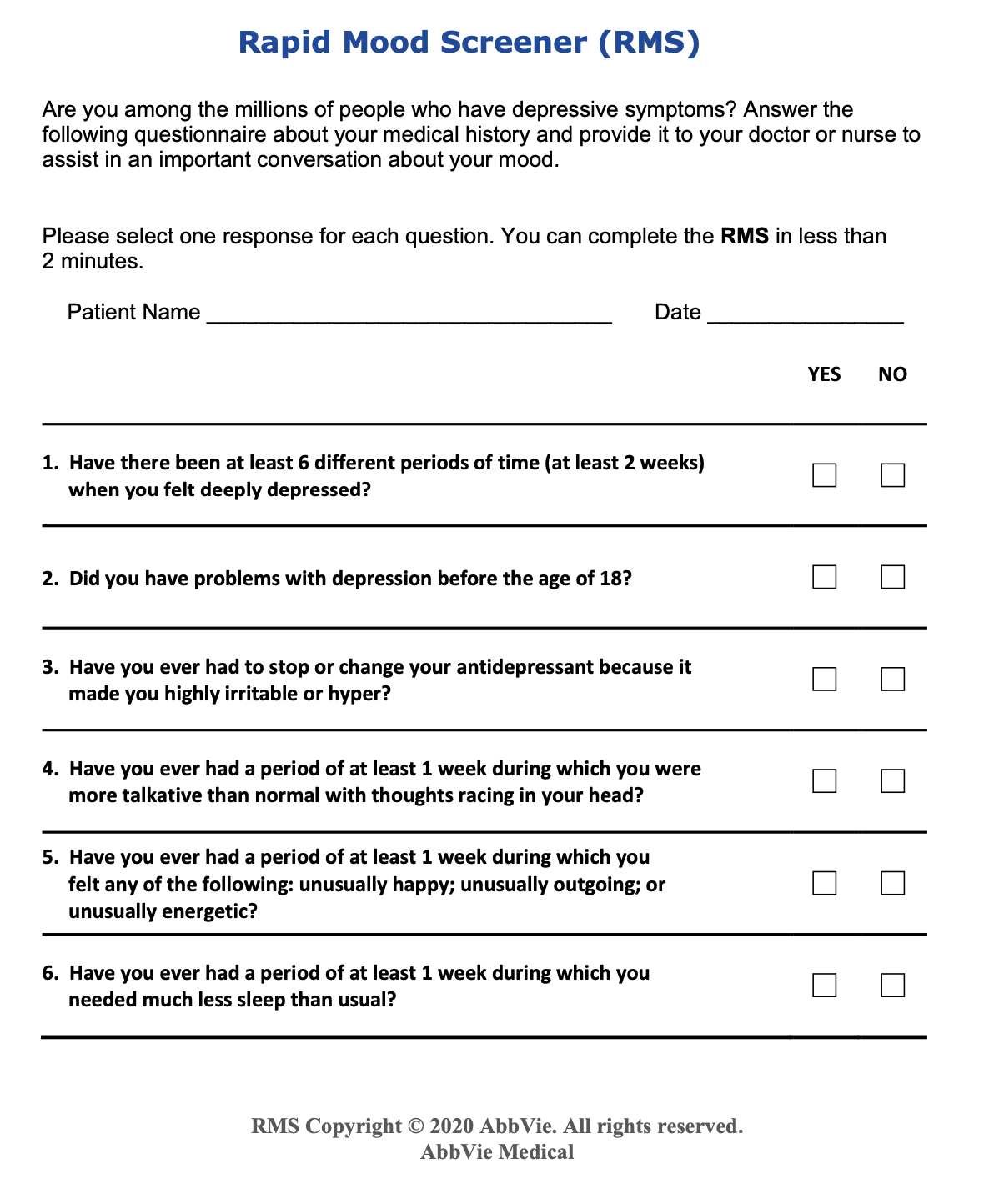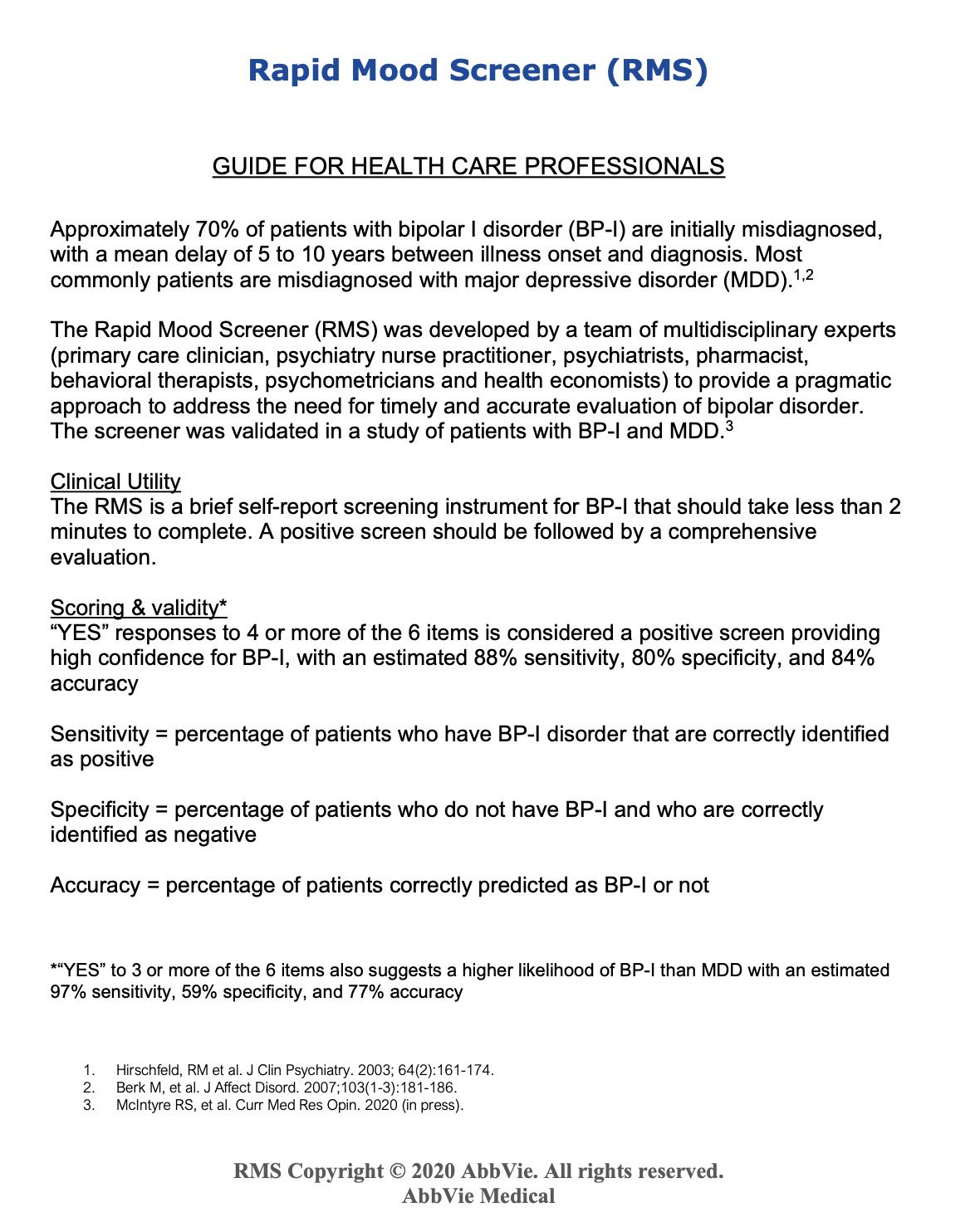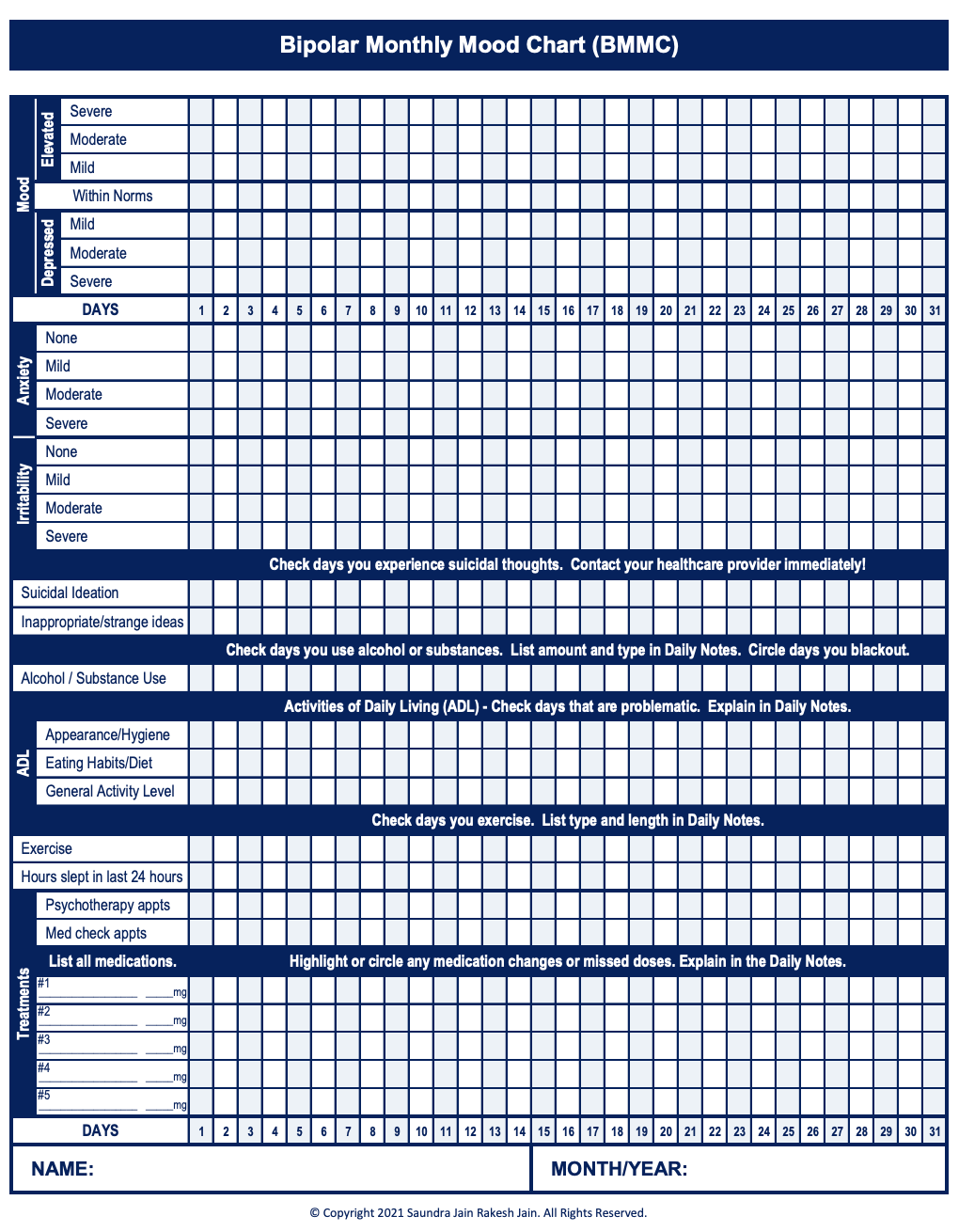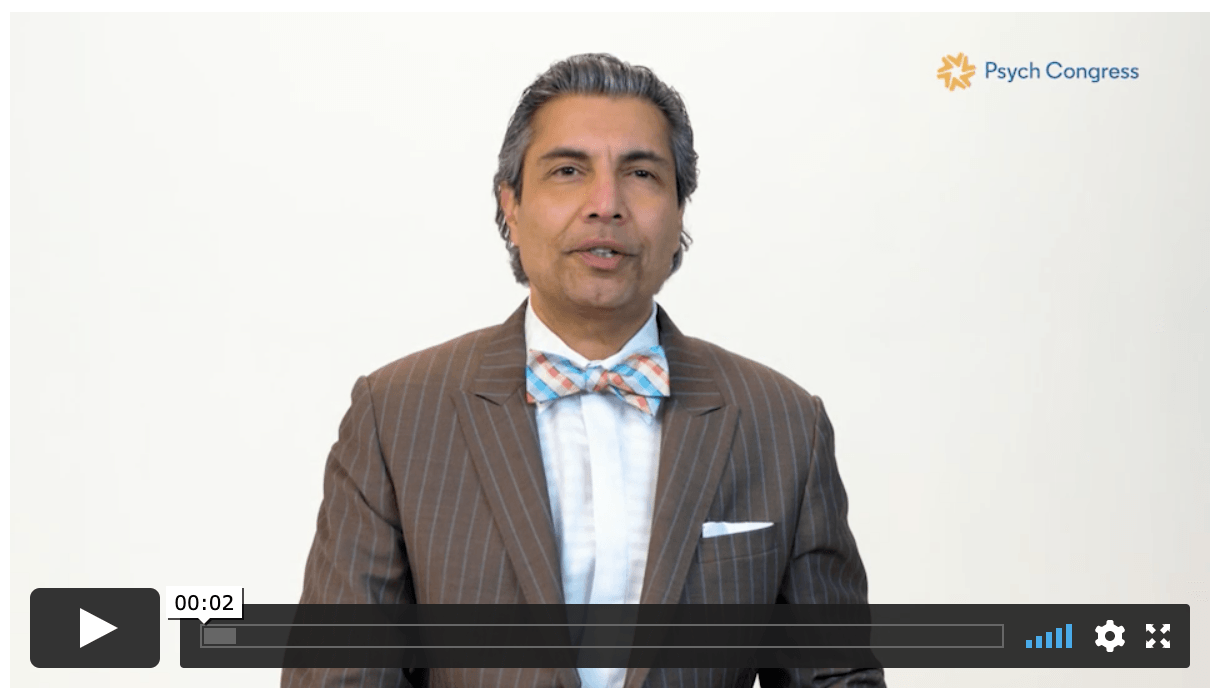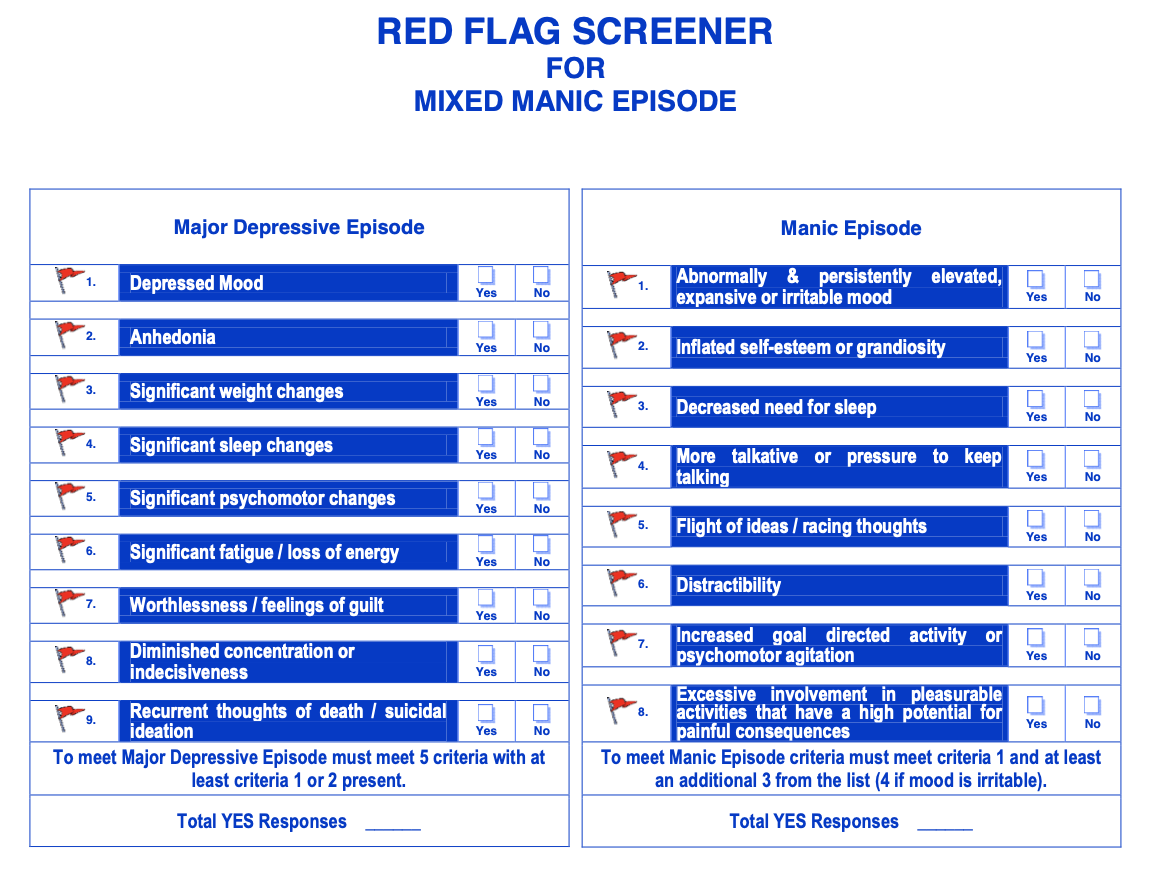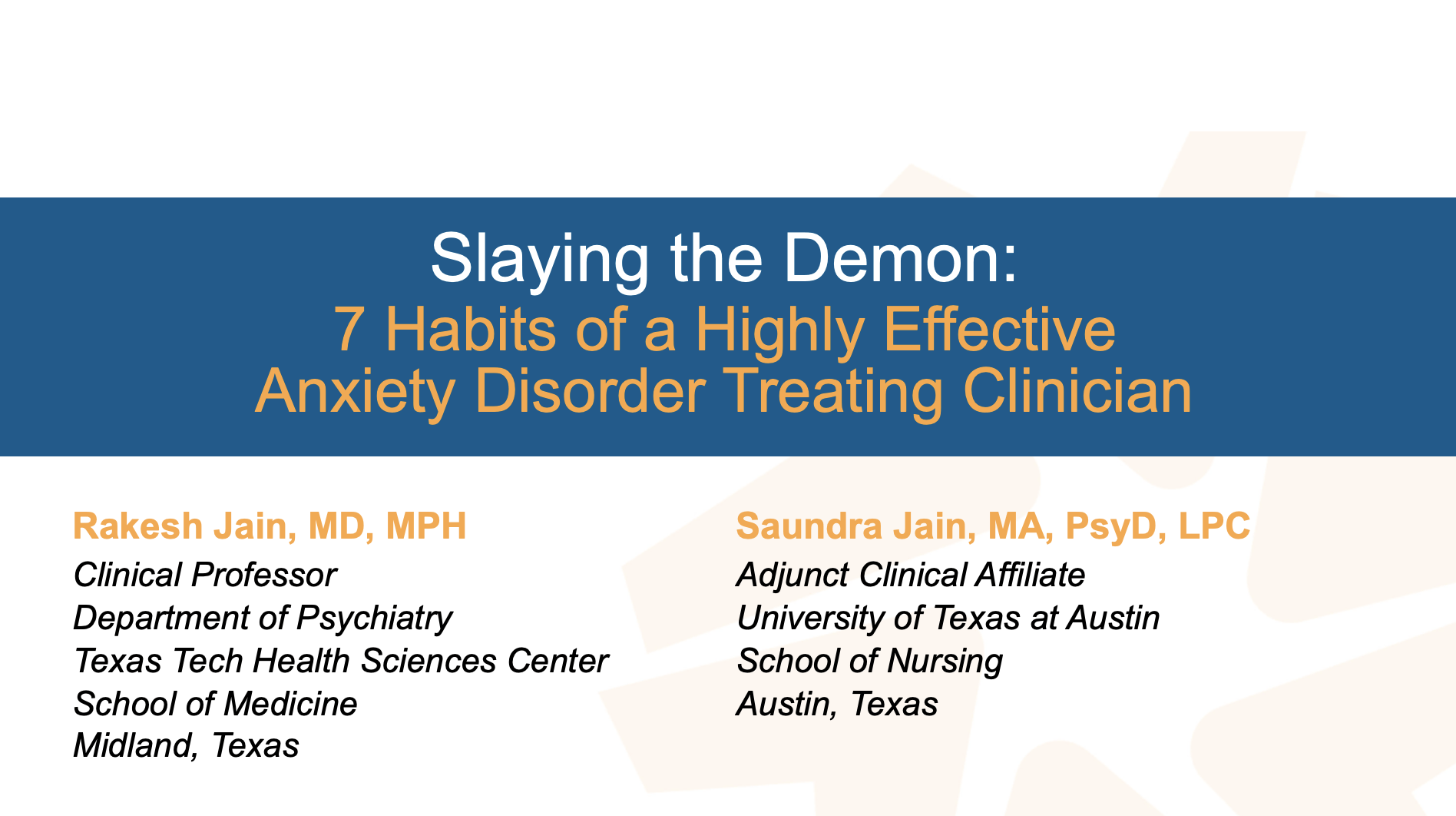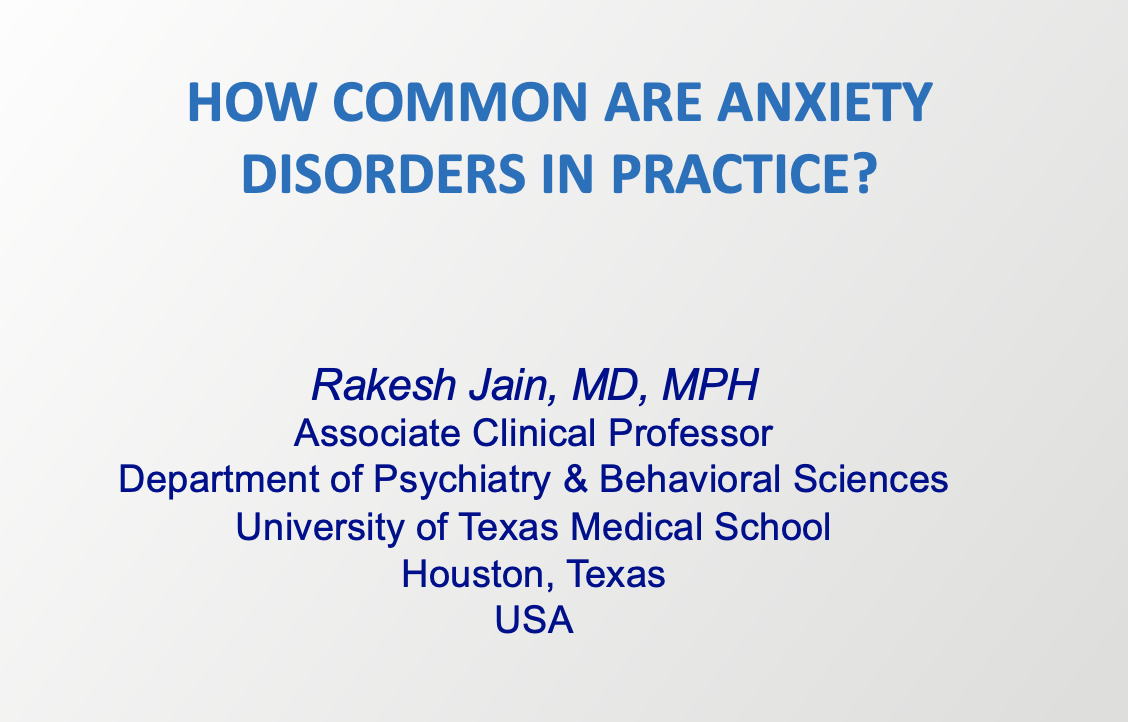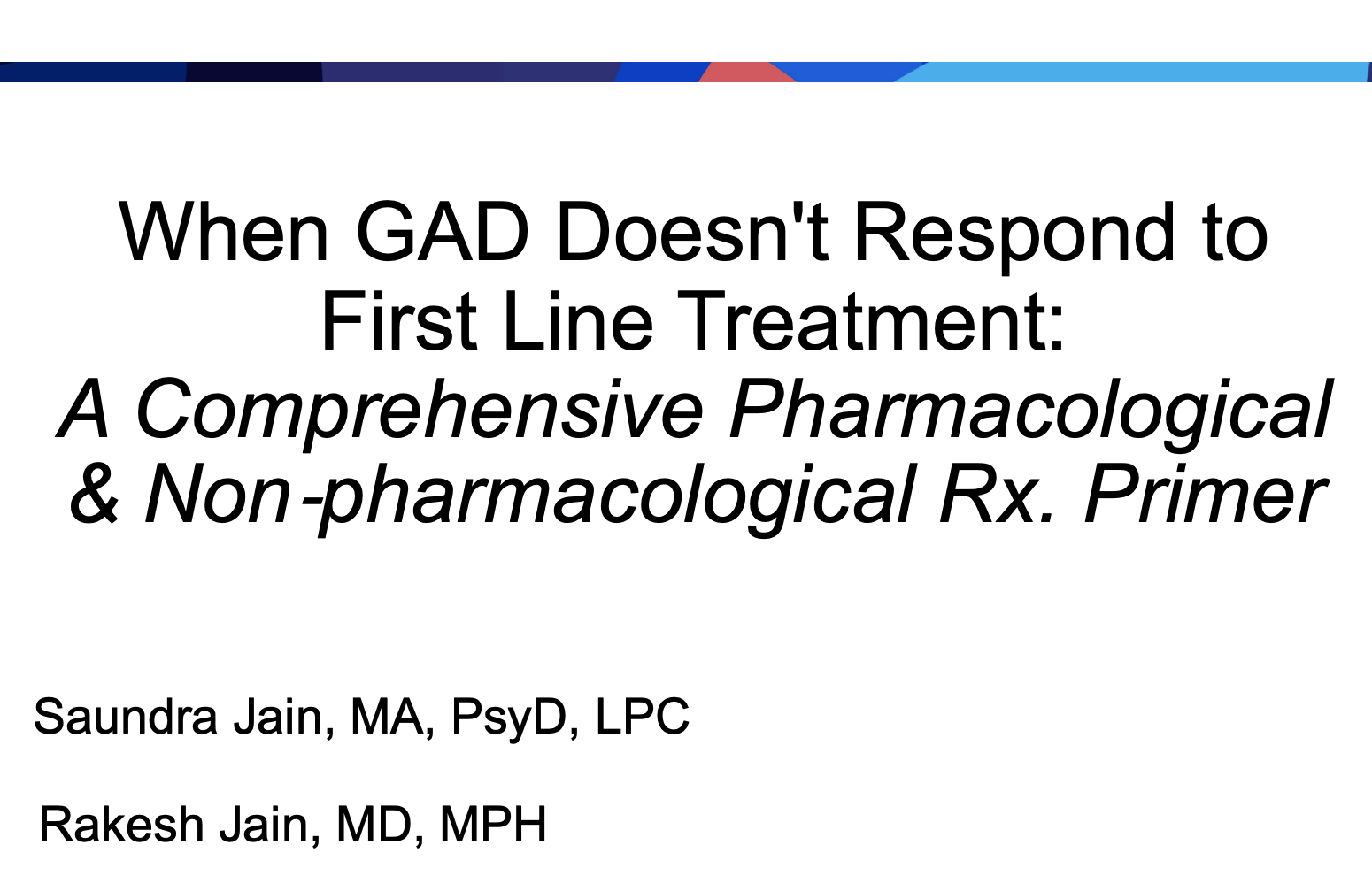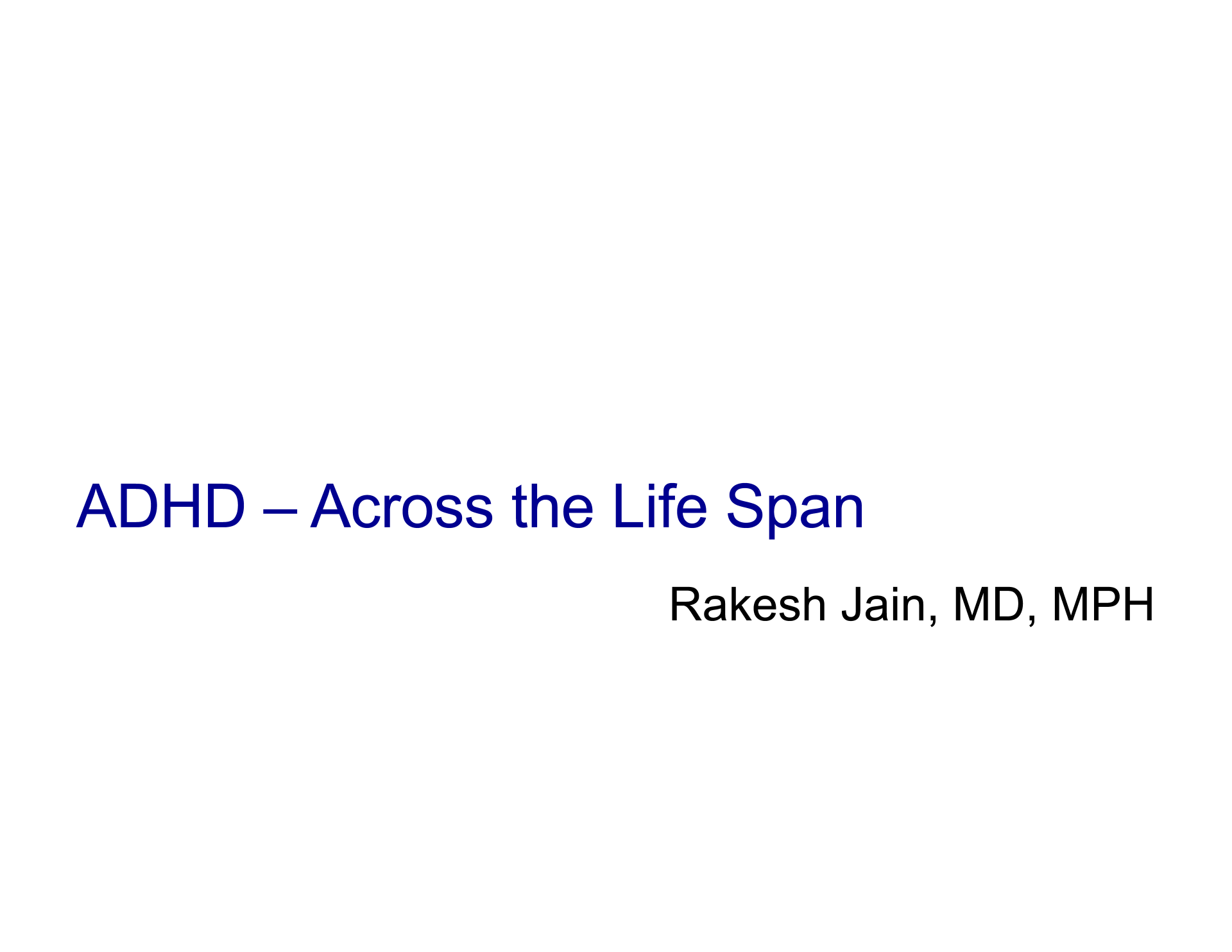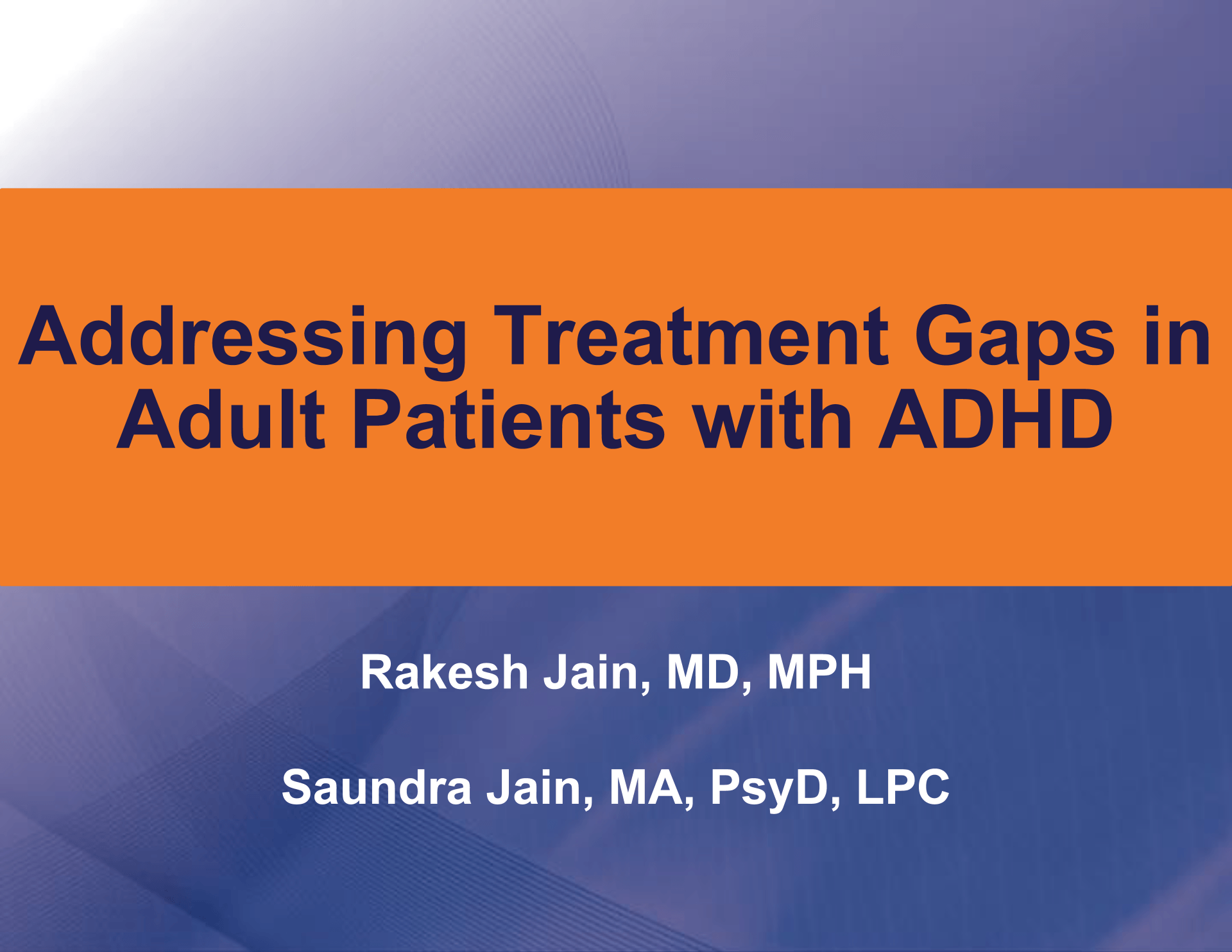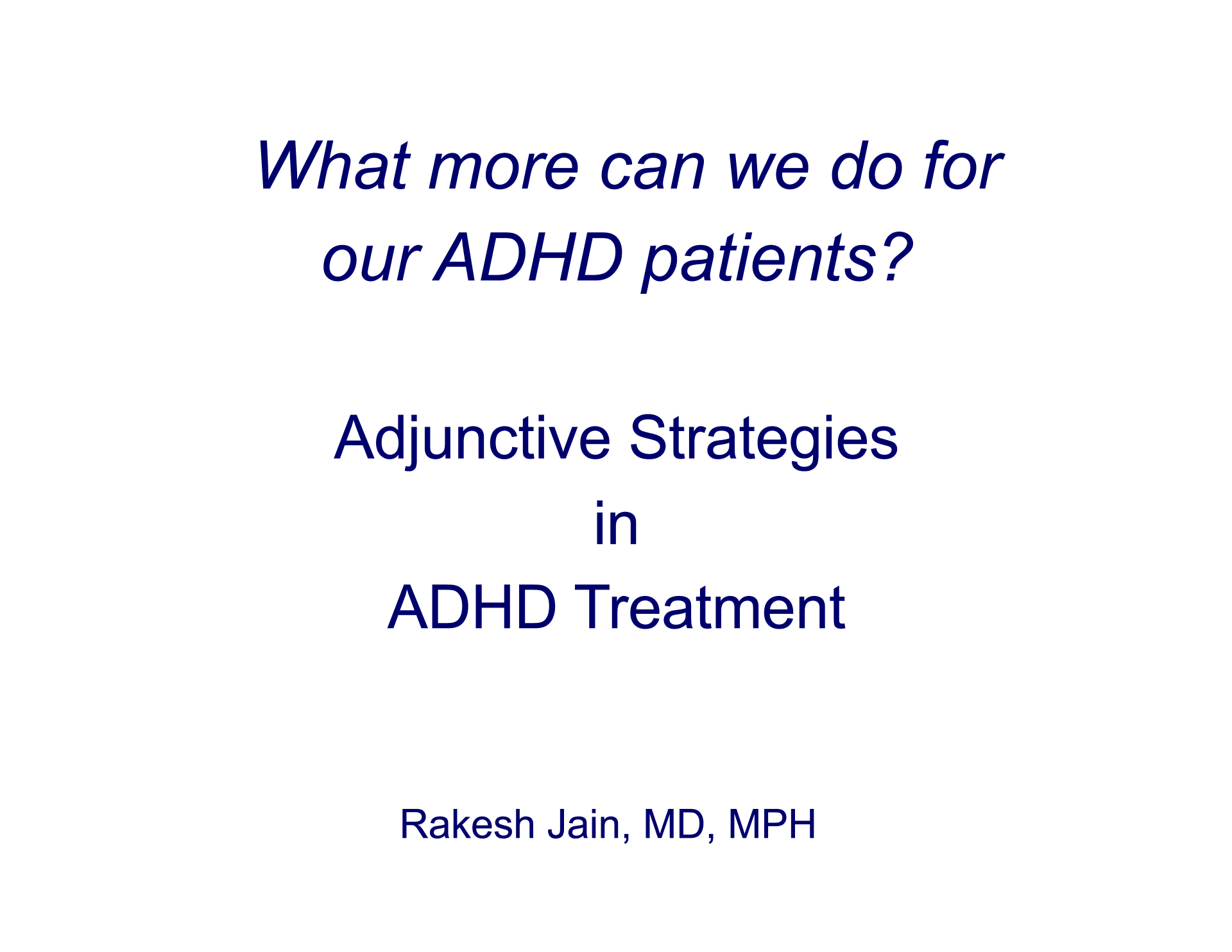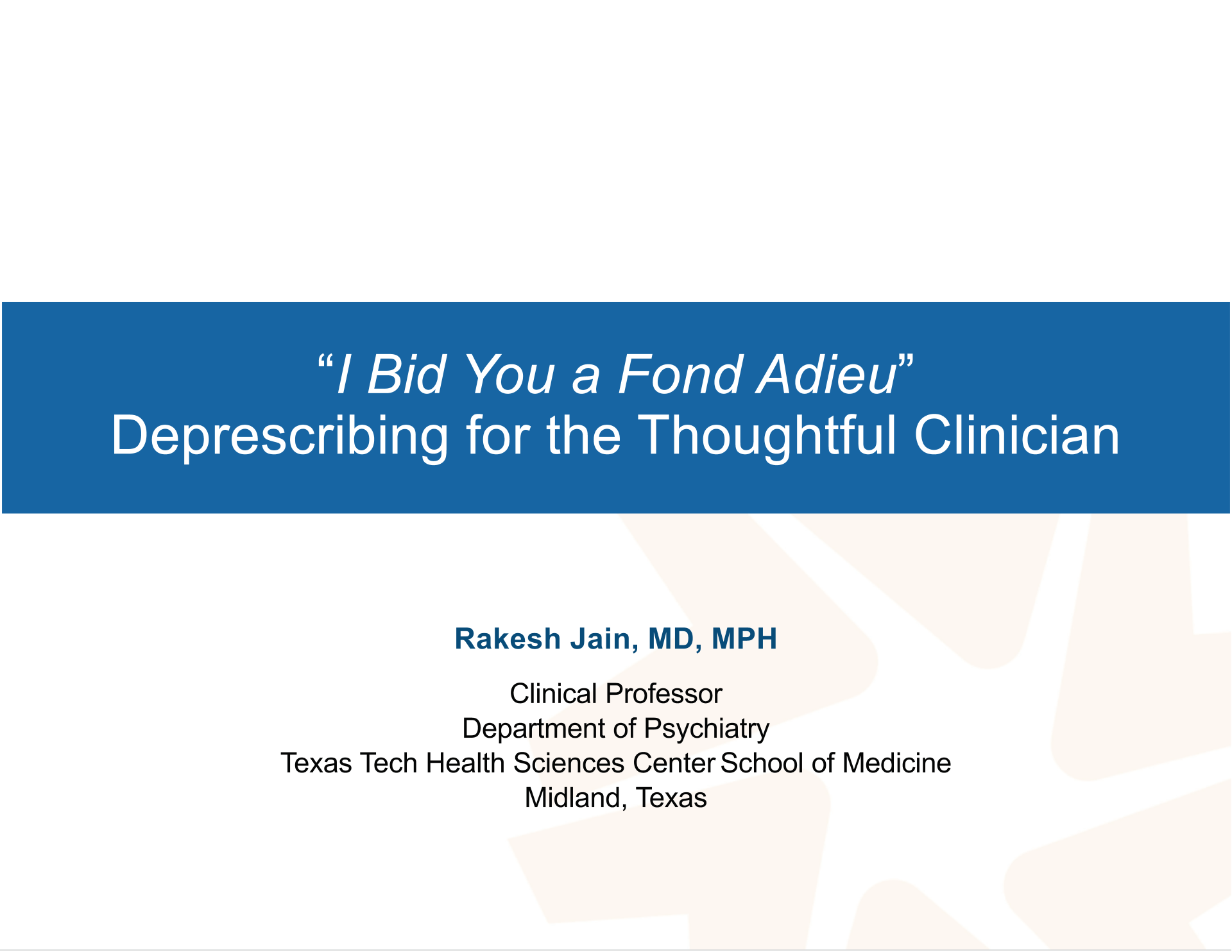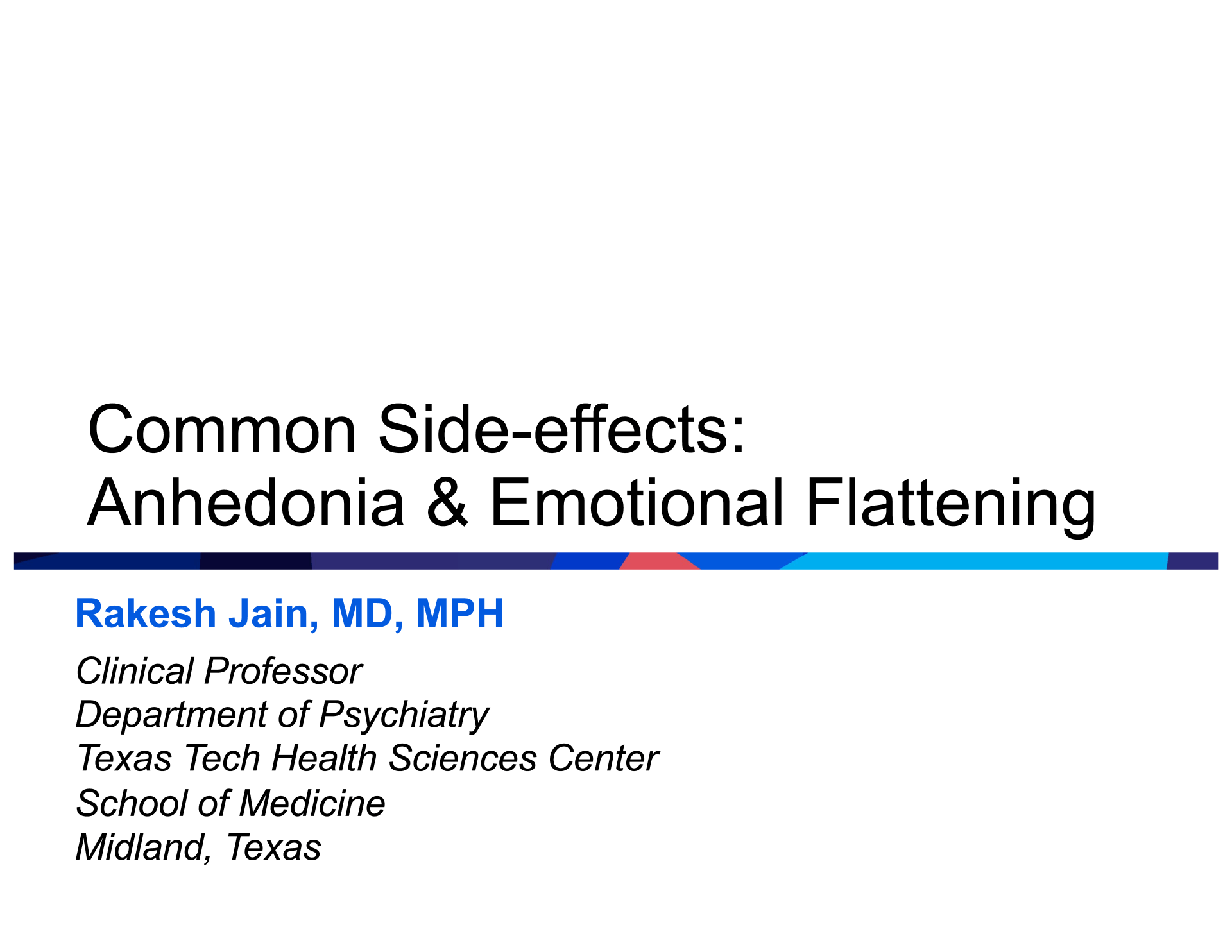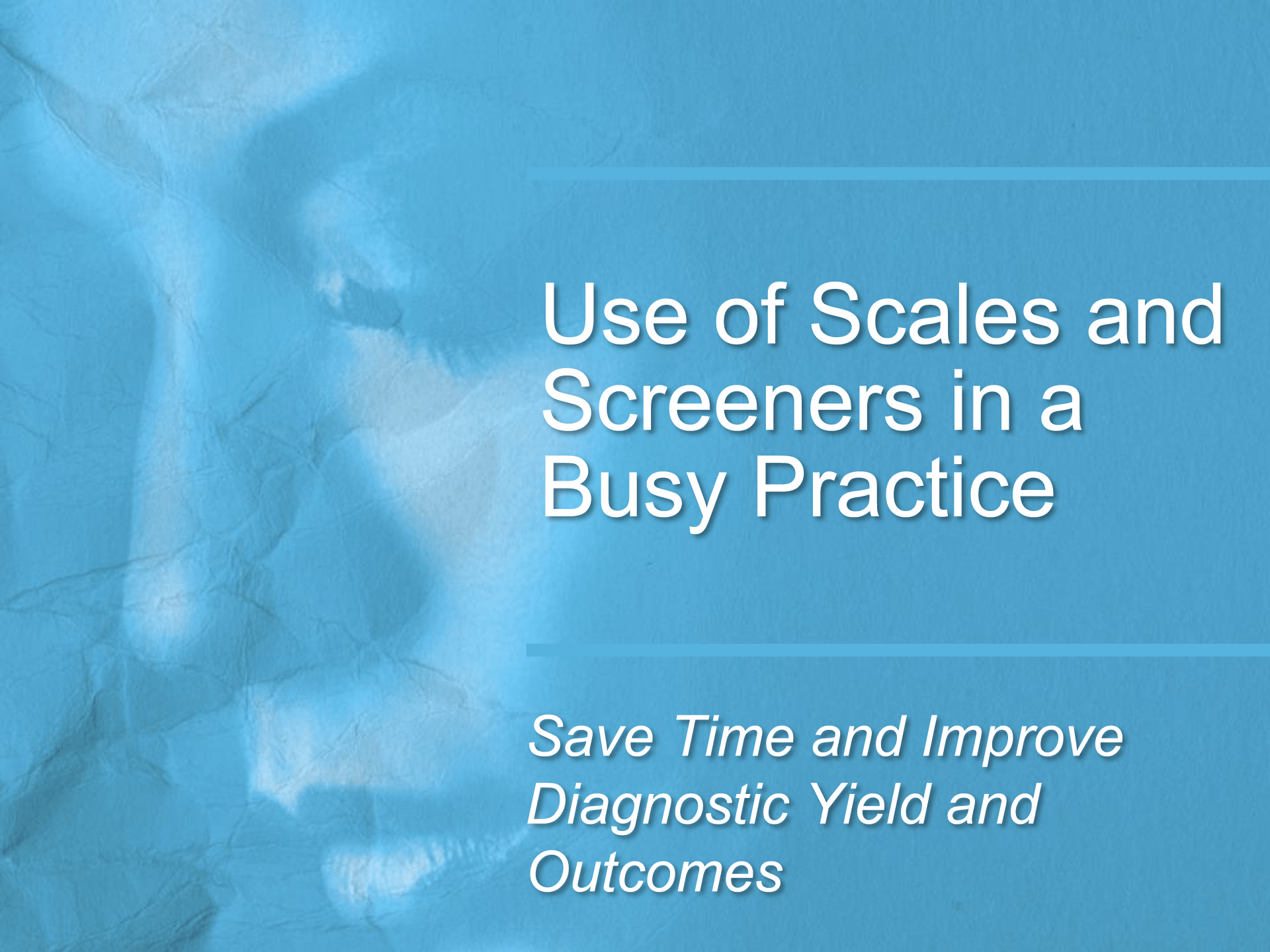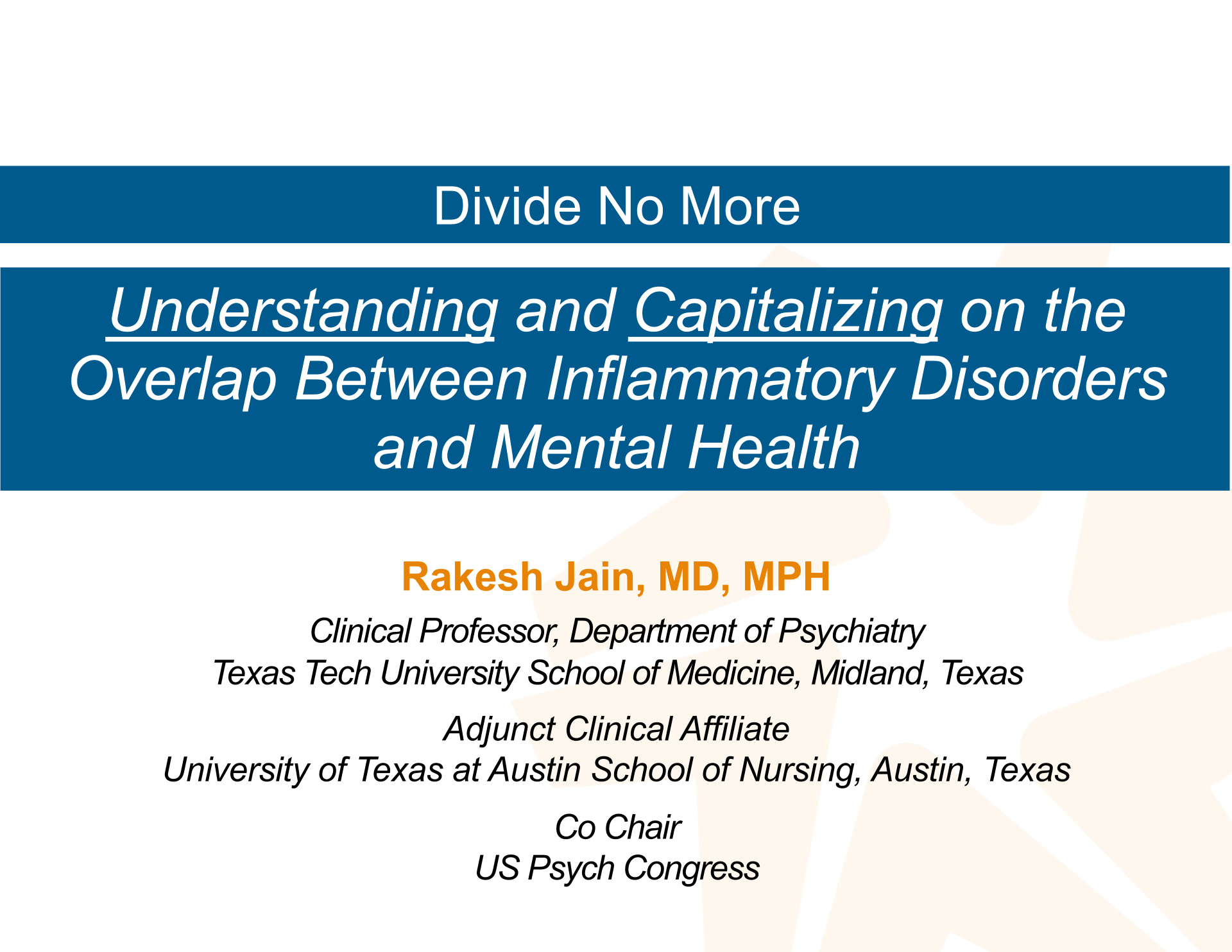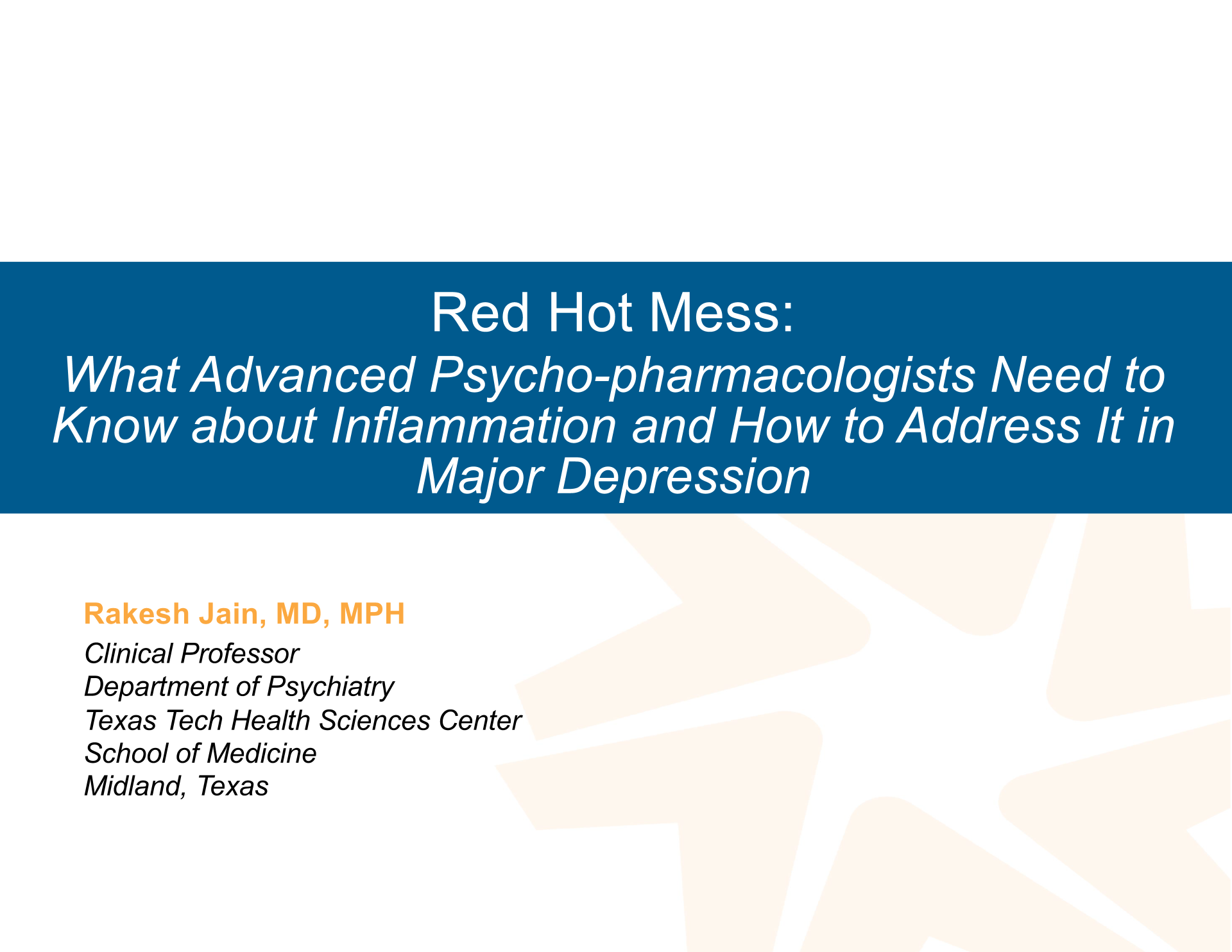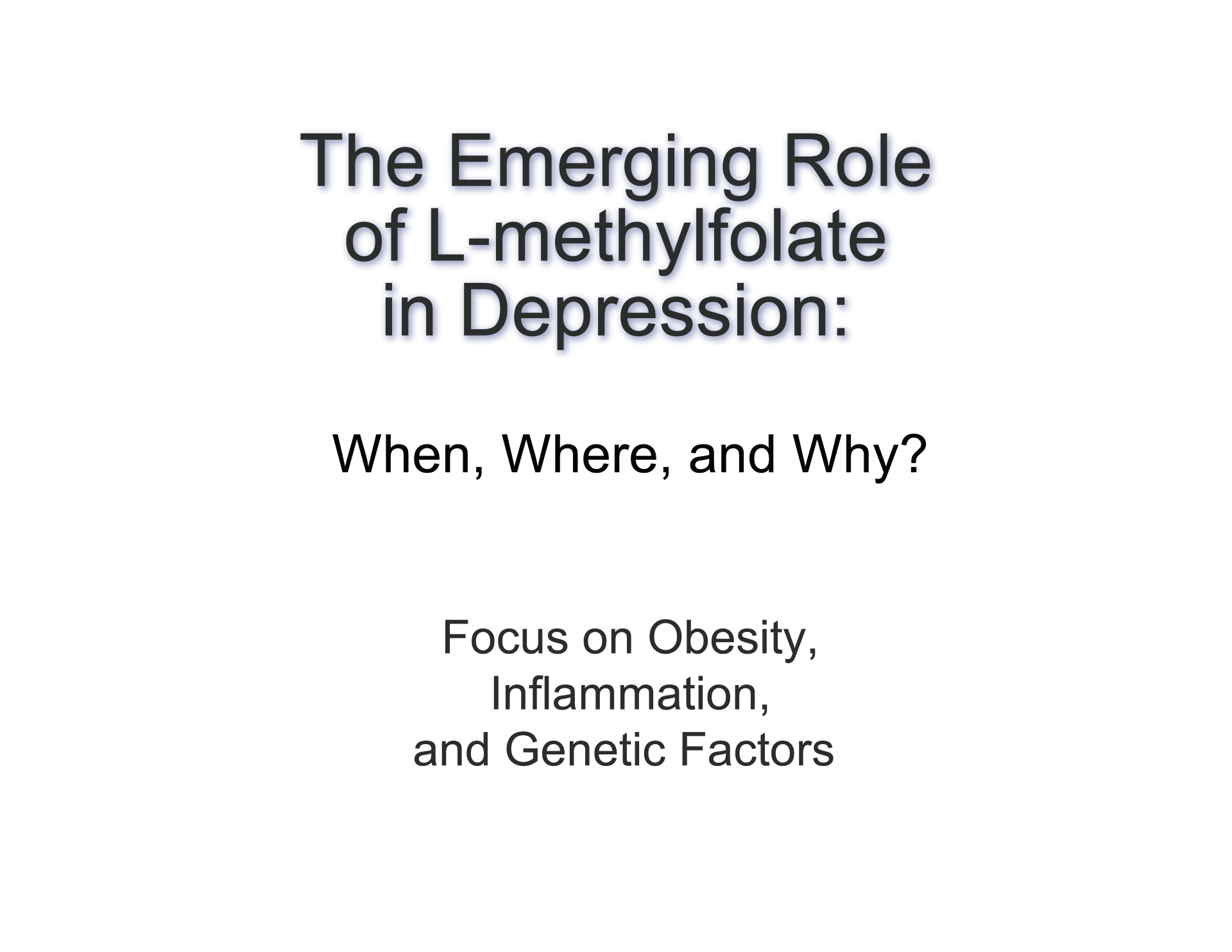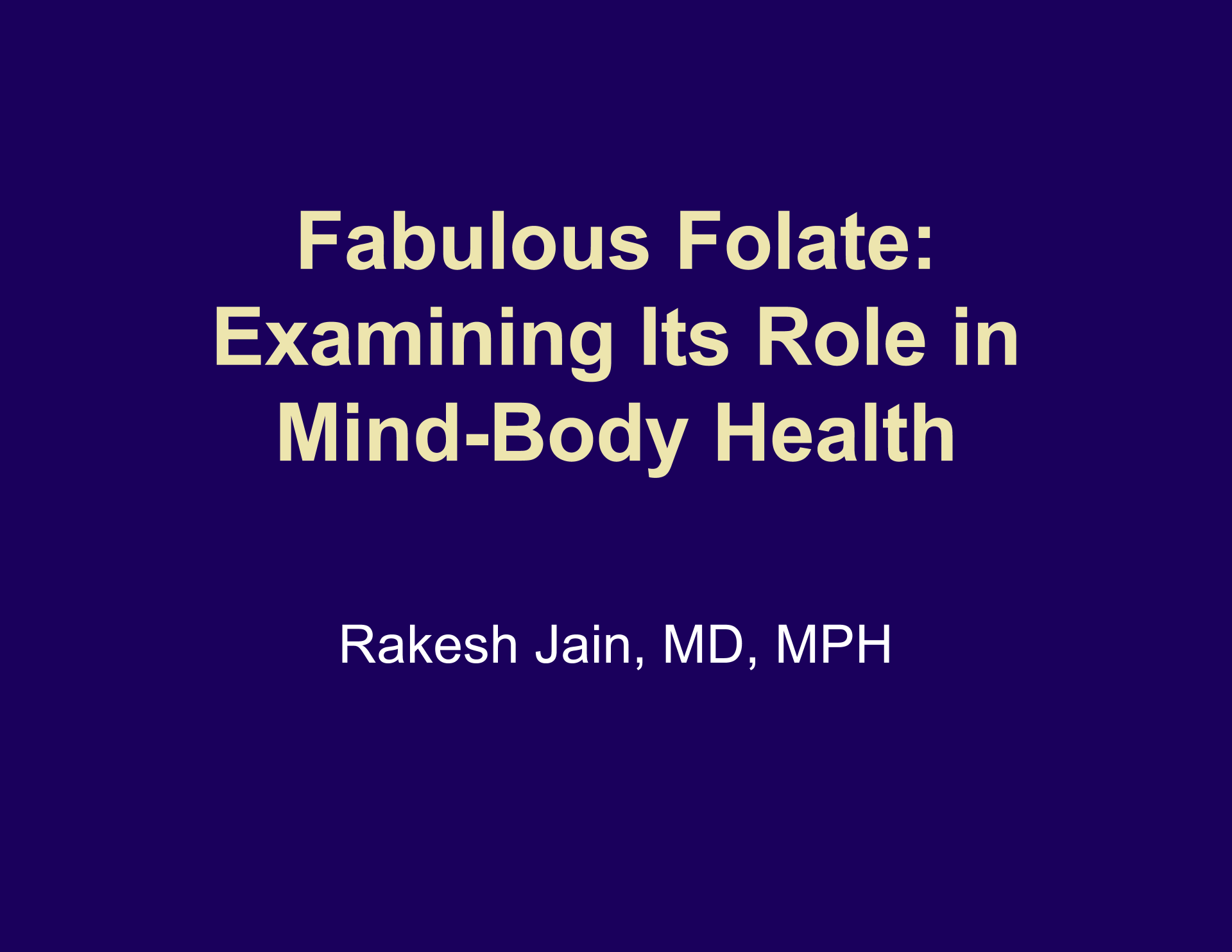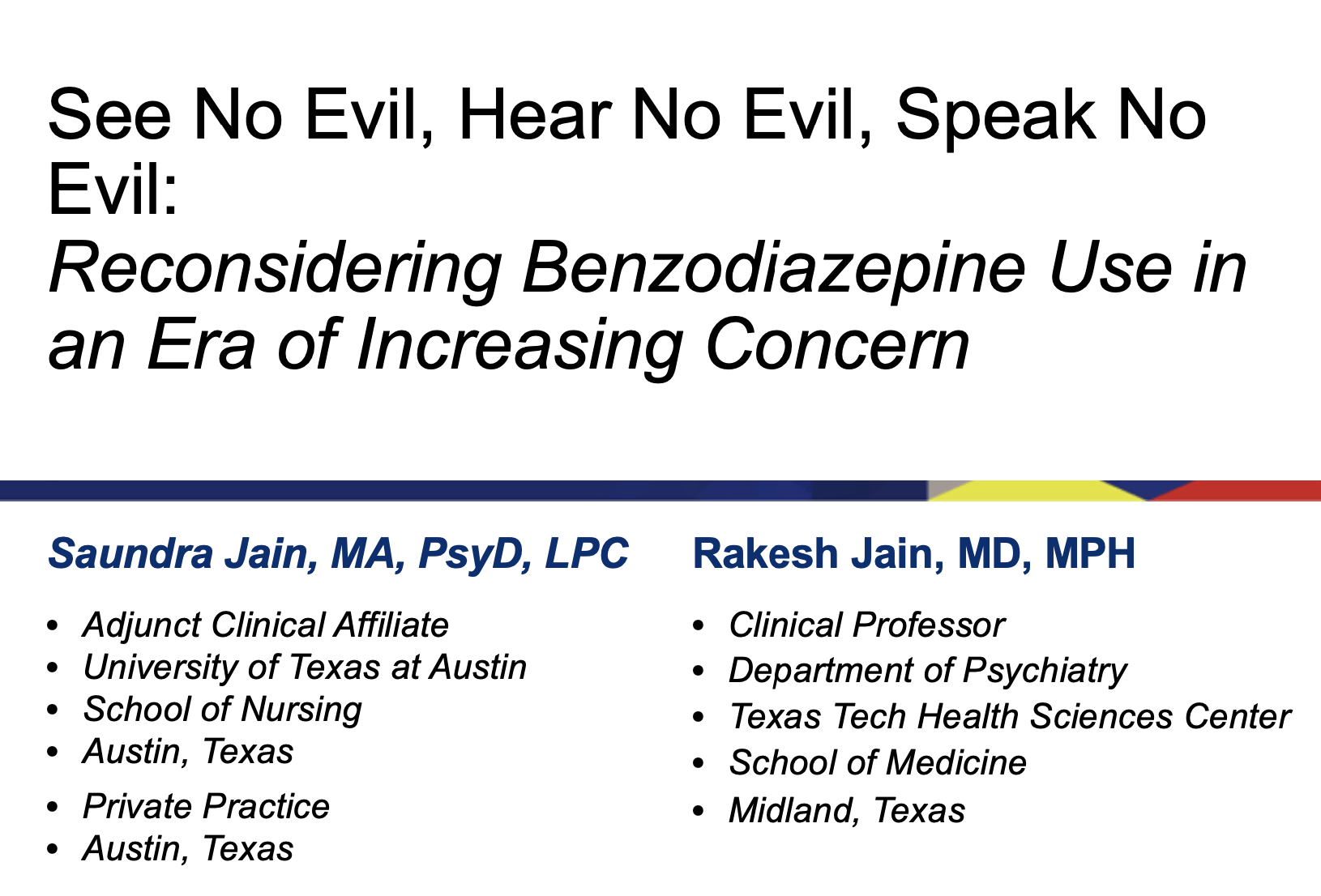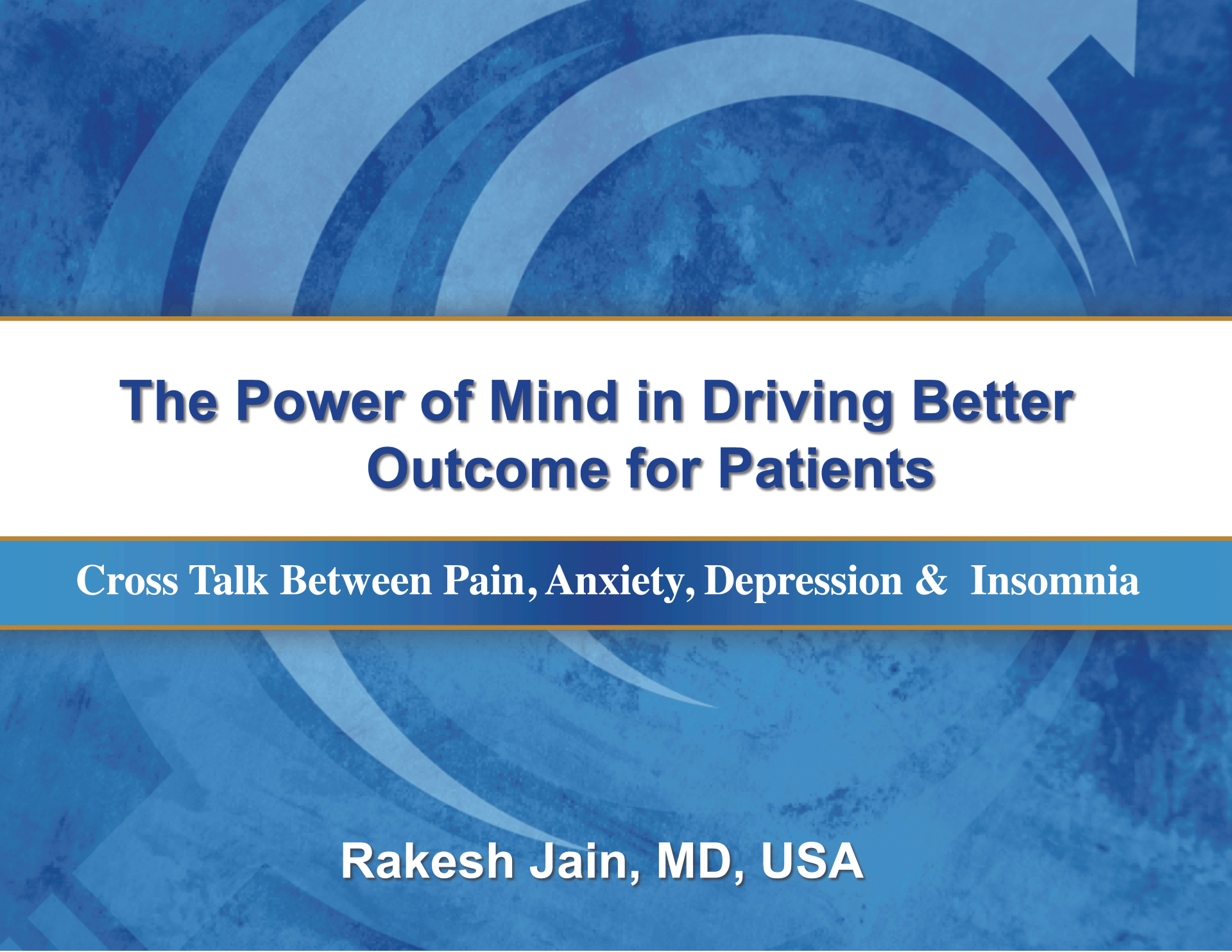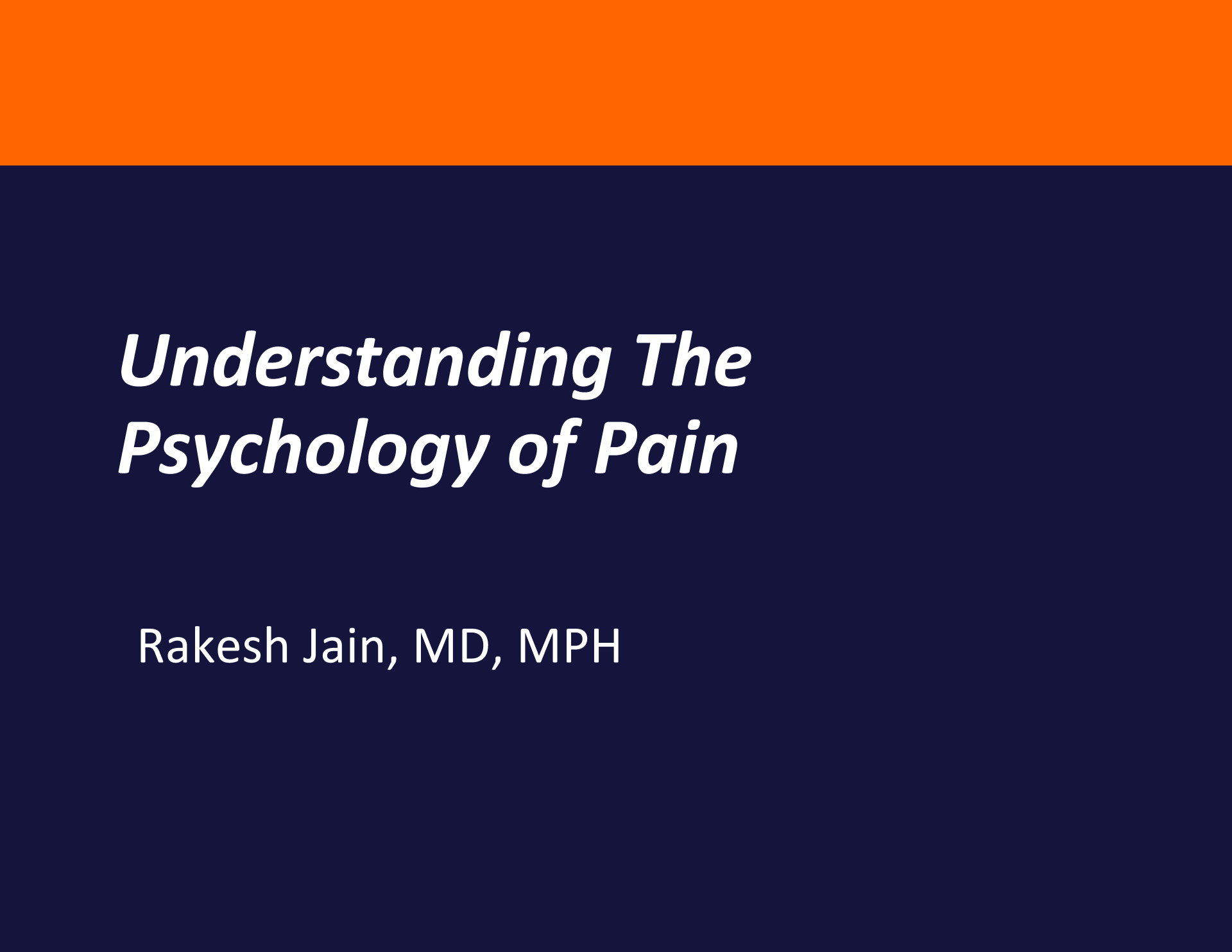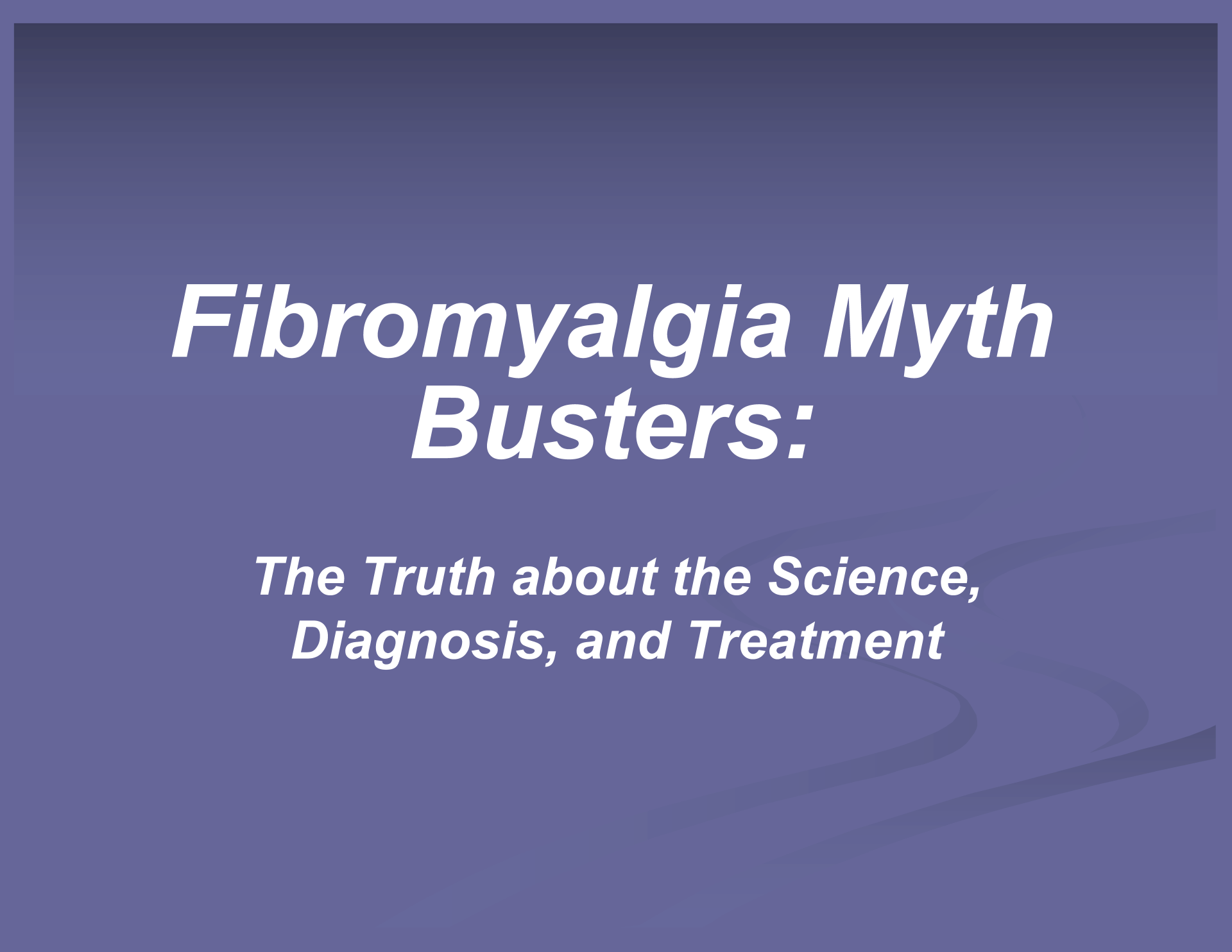Bipolar Disorder - Untangling The Gordian Knot
Bipolar Disorder, and specifically Mixed Manic episodes, are particularly difficult to detect, diagnose and treat. We have conducted a deep dive into this issue, and here is a presentation you too might find interesting. We called it 'Untangling the Gordian Knot'.
More and more clinicians are offering atypical antipsychotics for the treatment of Major Depression. We conducted a deep dive into the literature to examine if this approach is logical. There are two presentations below that help us better understand this issue. The first topic is a deep examination of the benefits and guideline recommendations regarding atypical antipsychotic use in MDD. This is a complex topic and requires the close attention of all clinicians. The second topic covers the hugely important issue of weight changes and cardio-metabolic risk with antipsychotic medications.
Over the years, we have attempted to develop a deeper understanding of the various neurotransmitters involved with human wellness and illness. Below, you will find presentations and resources of four of the most important neurotransmitters of the human brain - Glutamate, Norepinephrine, Serotonin and Dopamine. We hope you benefit and enjoy these resources.
Below you will find three more presentations we created to cover the topics of neuroprotection, neurobiology and receptor pharmacology. We hope you find them useful in your own educational journey.
RMS - a new Bipolar Disorder screening tool
Bipolar Disorder is a slippery, easily missed and often misdiagnosed condition. RMS, which one of us helped develop, is a major new advance in reducing the risk of a missed diagnosis of BD. The article is downloadable for free at this link.
Below is the RMS - feel free to download it and use it in your practice.
Bipolar Monthly Mood Chart
Nearly two decades ago we created this mood chart in order to help our patients track their symptoms. It is quite comprehensive and ended up being of enormous help to patients and us clinicians in understanding in detail the day-to-day variations in mood, anxiety, behavior, etc. You are welcome to download a copy and use it in your own clinical practice.
Tardive Dyskinesia:
This is a complex and frightening disorder. Here is a nearly one-hour long, full length presentation by one of us on this topic. It offers a comprehensive assessment protocol, as well as treatment options to consider in helping such individuals.
AIMS Scale:
conducting a 'gold standard' examination
AIMS is the gold standard tool in the assessment of tardive dyskinesia. Here is a short video demonstrating how to rapidly and accurately conduct an AIMS examination.
Watch here.
Reg Flag Screener for Mixed Mania
Over a decade ago we became very concerned about missing a diagnosis of Mixed episodes in Bipolar Disorder. We therefore used the wisdom of DSM and created this simple, incredibly accurate, and useful tool we called the
'Red Flag Screener'
for Mixed Manic Episodes. We hope you too find great utility for it in your practice.
Anxiety Disorders - Slaying the Demon
Anxiety disorders are a problem of indescribable magnitude. They are common amongst us, and they are often chronic and impairing. We have both devoted a large part of our lives to educating clinicians, and treating this challenging condition. Below you will find a presentation we put together that distills our collective 50+ years of clinical learning into one comprehensive resource. Please feel free to download it and use it for your own benefit and for your presentations. We entitled this presentation 'Slaying the Demon' and here we offer you 7 habits of an effective anxiety disorder treating clinician.
Here is a presentation we created that covers 50 different common and important questions about Anxiety Disorders. It took a lot of work to create, but it was well worth it! We hope you benefit from this very comprehensive examination of anxiety disorders.
Generalized Anxiety Disorder
Anxiety disorders, including Generalized Anxiety Disorder, are notoriously difficult to treat and often don't respond to first-line treatment. We offer several tips and suggestions in this in-depth analysis we conducted on treating resistant GAD. We hope this give you ideas on how to treat these complex disorders.
ADHD - In Children and Adults
ADHD is a common condition in us human beings. It often causes significant problems in our life, be it educational, work related, family related, driving challenges, problematic impulsivity, just to name a few. Below are three presentations we have developed over the years that aim to educate on ADHD from childhood to adolescence to adulthood. We hope all three of these presentations add to your knowledge base.
Deprescribing
Below there are two presentation resources for you. The first - Deprescribing is as essential an art to master, as it is to master the art of prescribing a medication. We are certain you agree. However, deprescribing does not receive sufficient attention from clinicians and patients alike. We too have been guilty of underestimating the importance of deprescribing, and therefore set out to rectify our error. Here you will see a presentation we created from a deep examination of the data on deprescribing. We have added several specific medication classes to help ensure a smooth and successful outcome. The second presentation - Psychiatric medications can also often induce a state of apathy, a sense of lack of motivation, and a general sense of 'flatness'. If you want to explore this topic, we have created a presentation for you below.
Scales and Screeners
We are aware psychiatric care will not make much progress until the use of measurement-based clinical care is conducted routinely. Scales and screeners are intensely helpful. Yet, many clinicians and their clients shy away from them, mostly because of lack of familiarity and knowledge. We have created a resource for you that hopefully deeply educates on this important topic and gives you resources in such depth that you can immediately start utilizing these tools in your psychopharmacology and psychotherapy practices.
Inflammation and Mental Health
Inflammation is an important topic of conversation in mental health. About time, we say! Over this last decade we have explored this topic in great depth and detail, and below you will find two resources offering a comprehensive look at the latest research on the topic of inflammation and its impact on mental health, physical health and the mind-body divide. We also offer you practical tips on how to address the challenge of chronic inflammation in us and in our patients.
Folate and Mind-Body Medicine
Folate - which is vitamin B9 - is well established as a crucial part of good health. In particular L-methylfolate (LMF) has been in the news in the world of psychiatry and is increasingly being used as a medication augmentation strategy. This has not escaped our attention, and for about a decade we have been looking at the world literature on this topic. Below you will find two presentations that might satisfy your intellectual curiosity regarding folate, as well as offer you some tips on utilizing folate in clinical practice.
Benzodiazepines:
The Good, The Bad, and The Ugly
Benzodiazepines are incredibly useful medications for many people. Yet, they can also cause a great deal of problems in others. What are clinicians and their clients to make of the conflicting data emerging from the world literature? Over the last five years we too have been examining this data in great depth and here is a resource for you, a comprehensive presentation that might shed more light on this complex topic.
Chronic Pain and Its Cross-Talk with Anxiety, Depression and Insomnia
Chronic pain is common, scary, and so impairing. There is a vast neurobiological connection between pain, and anxiety and depression. This has only recently come into focus. We have taken advantage of all these new findings and put them together in three separate handouts for you to review. We examined evidence from diverse fields of thought - pain medicine, psychiatry, basic sciences, etc. to create a new model for understanding chronic pain - it's called the SEC model.


